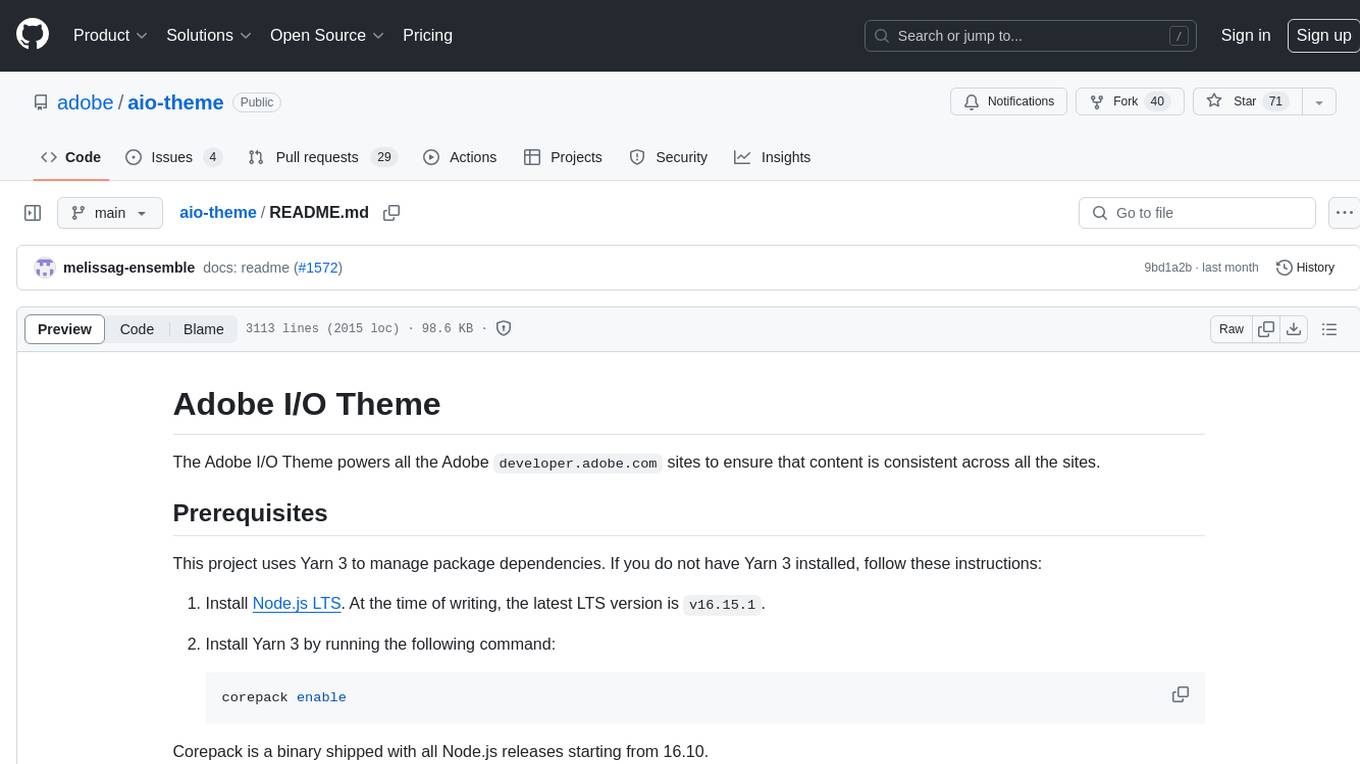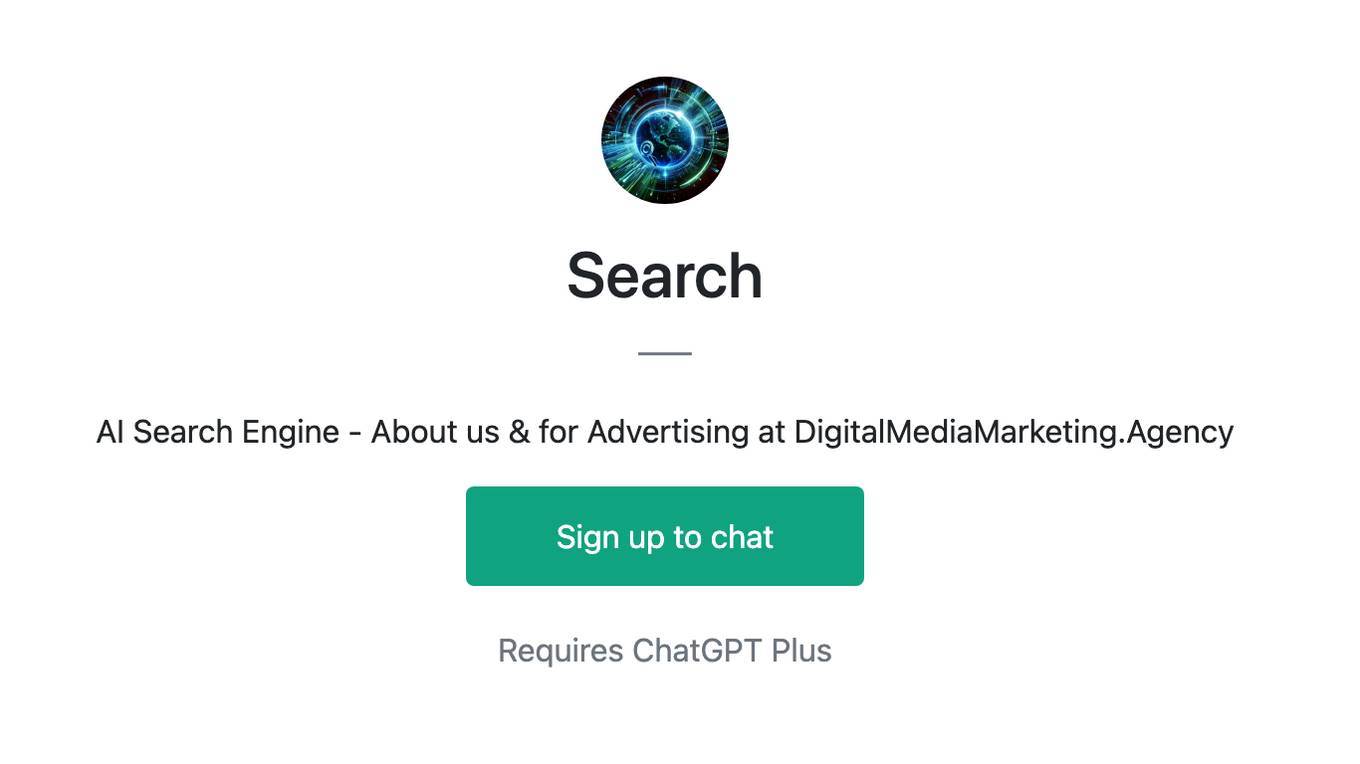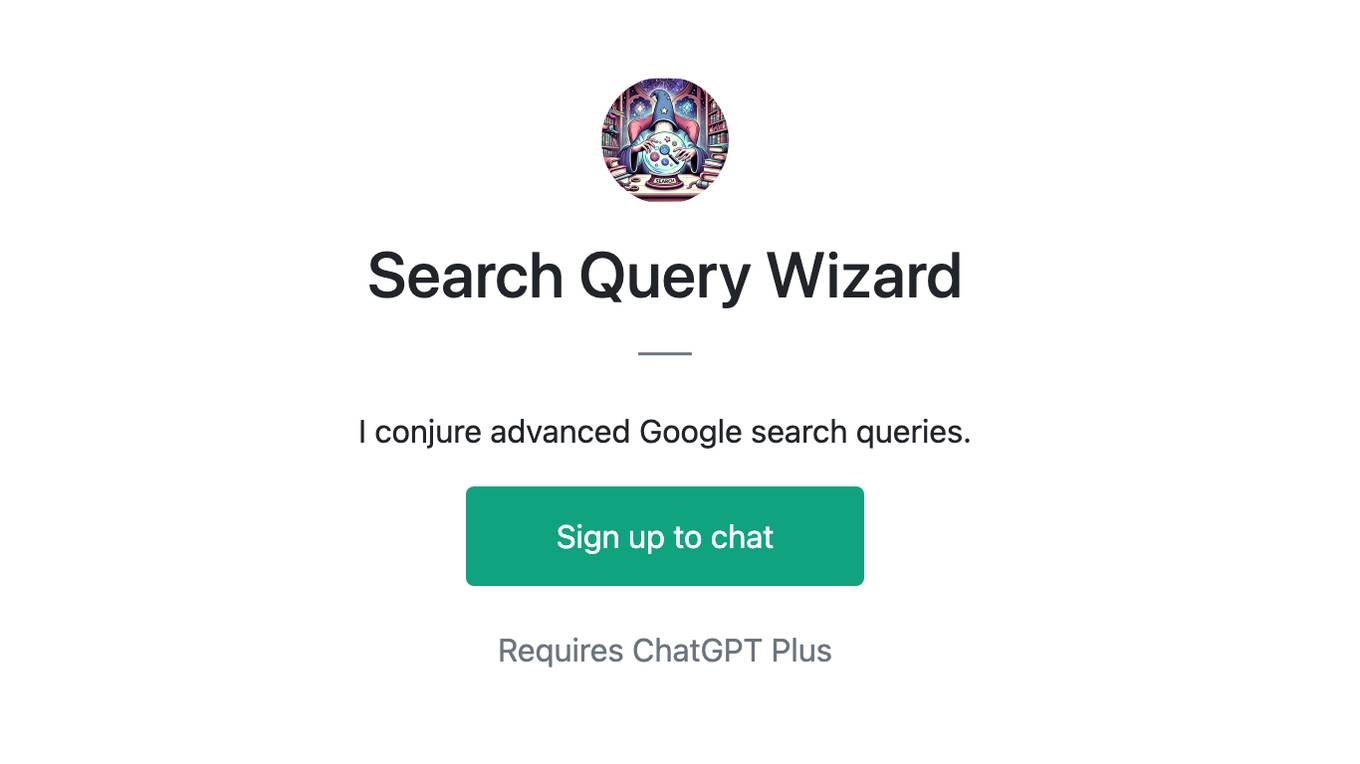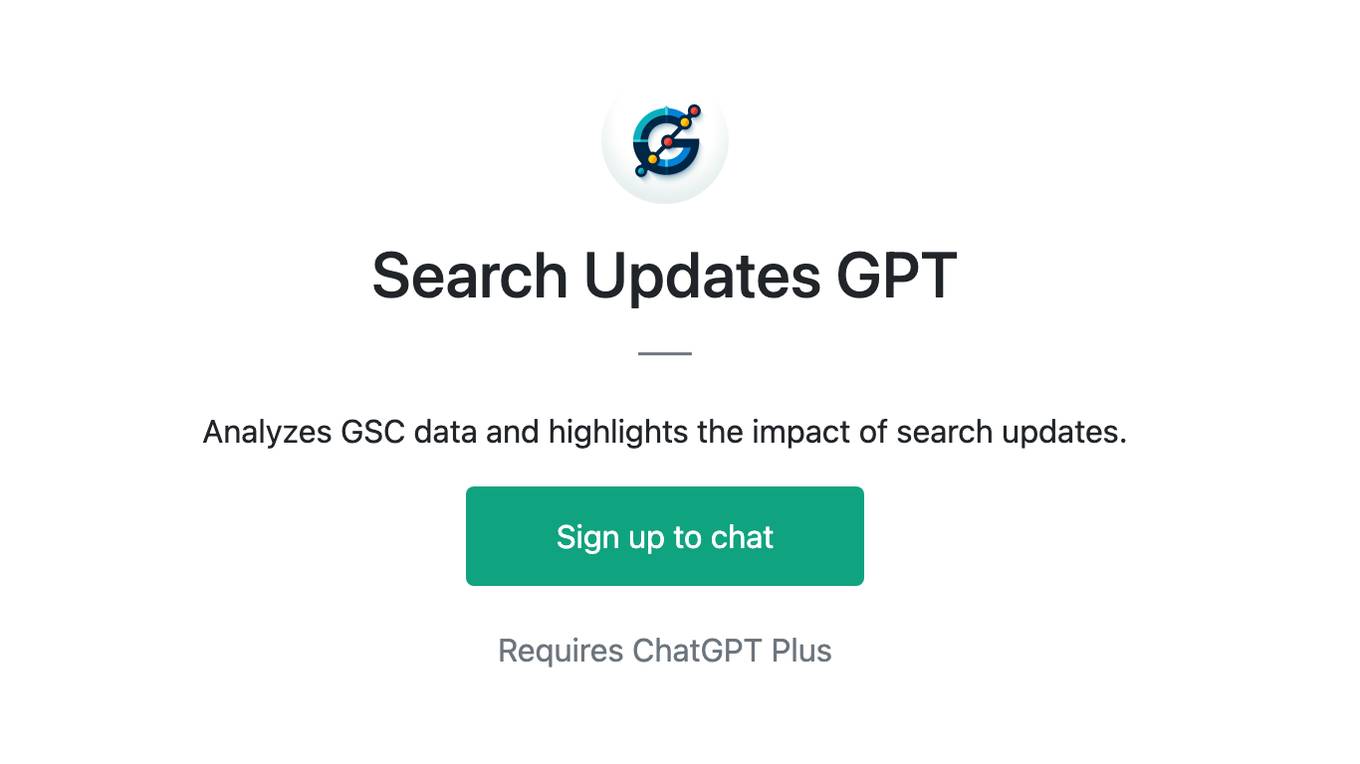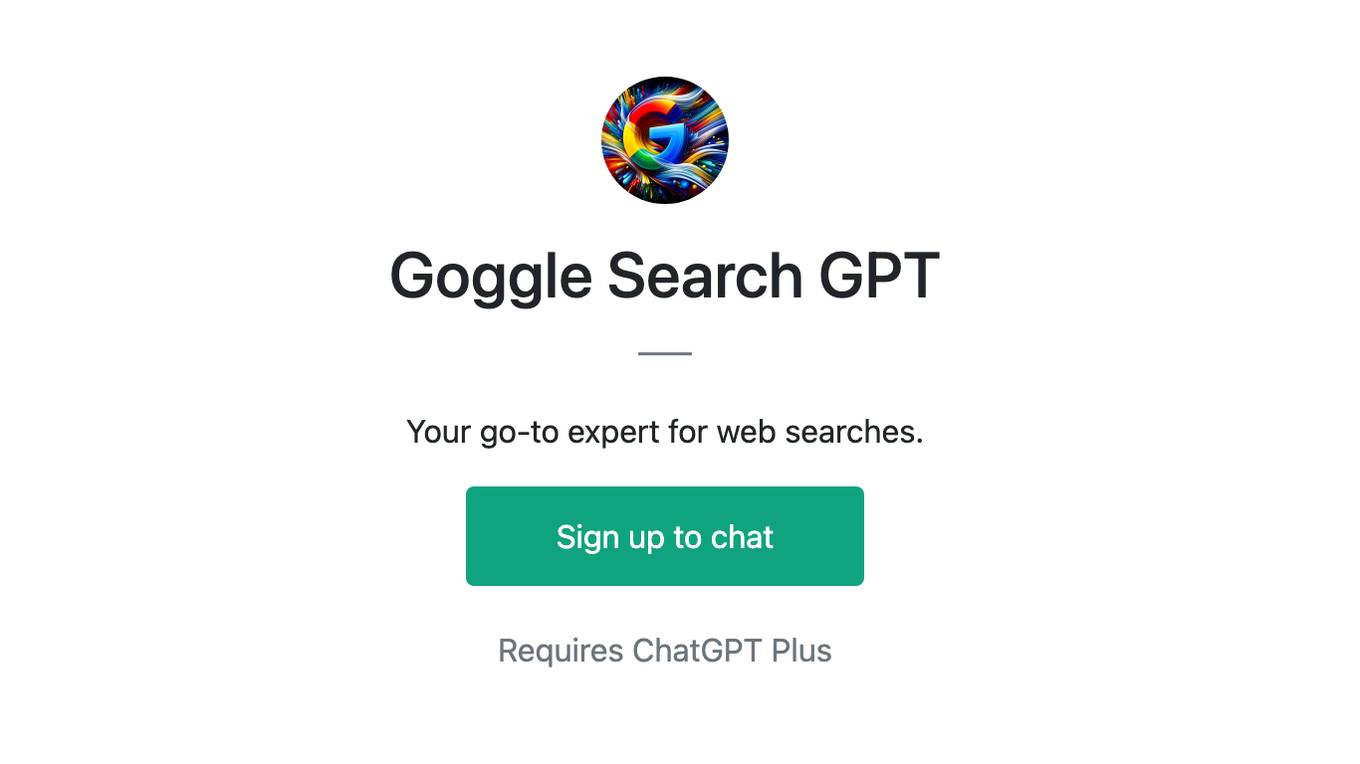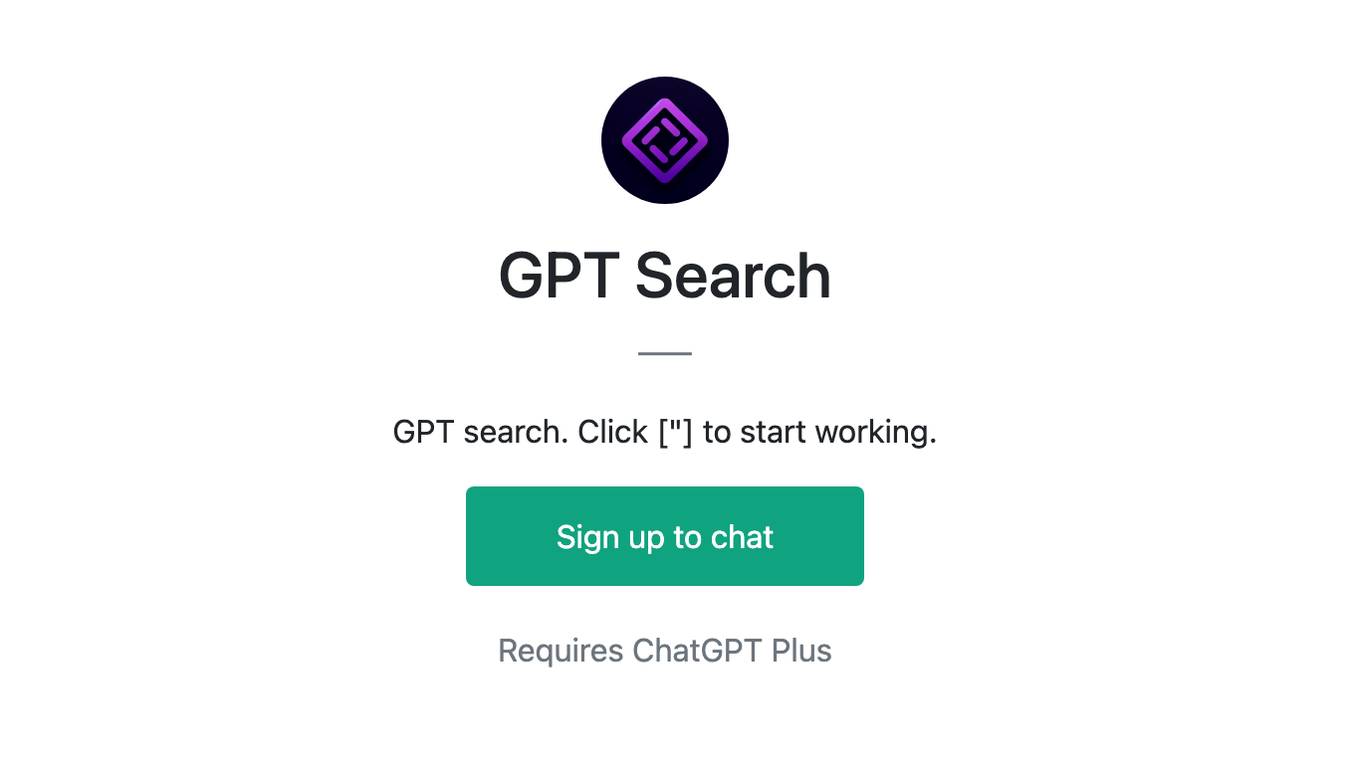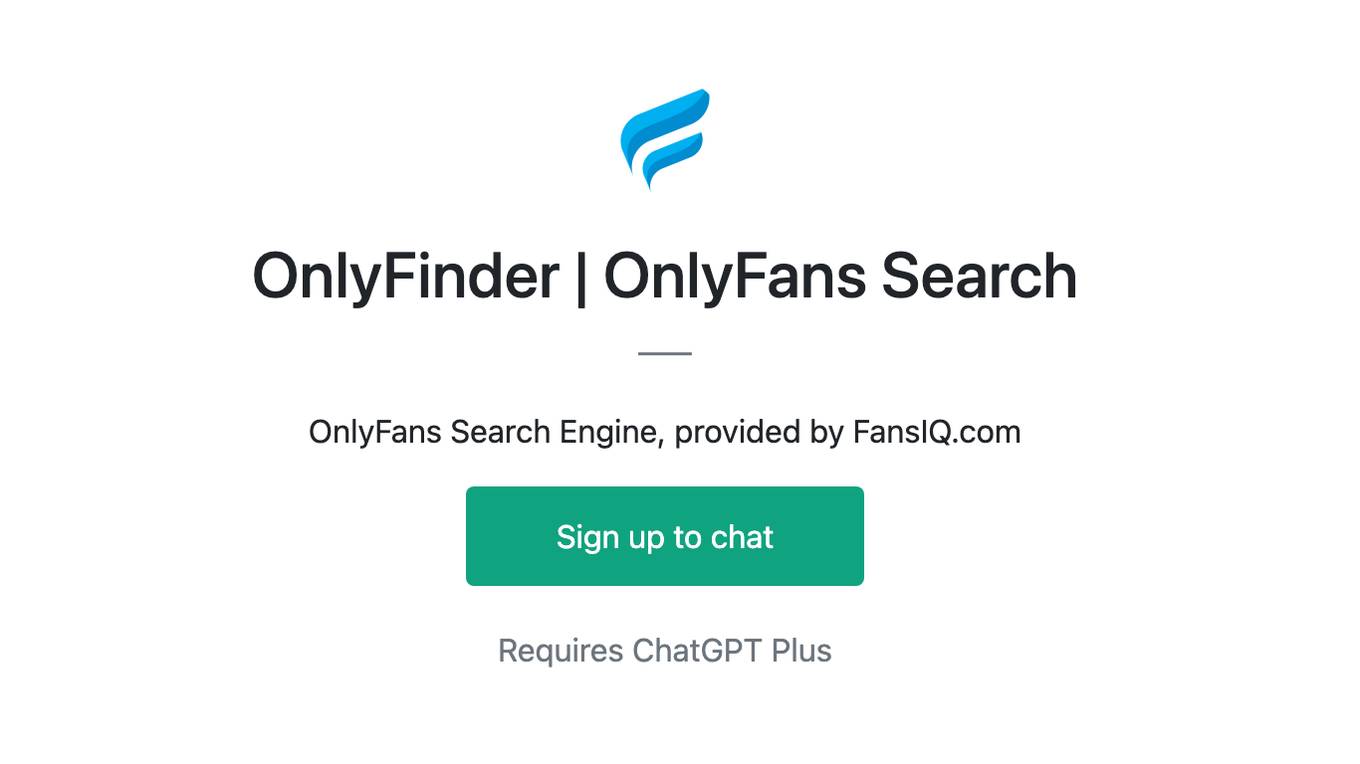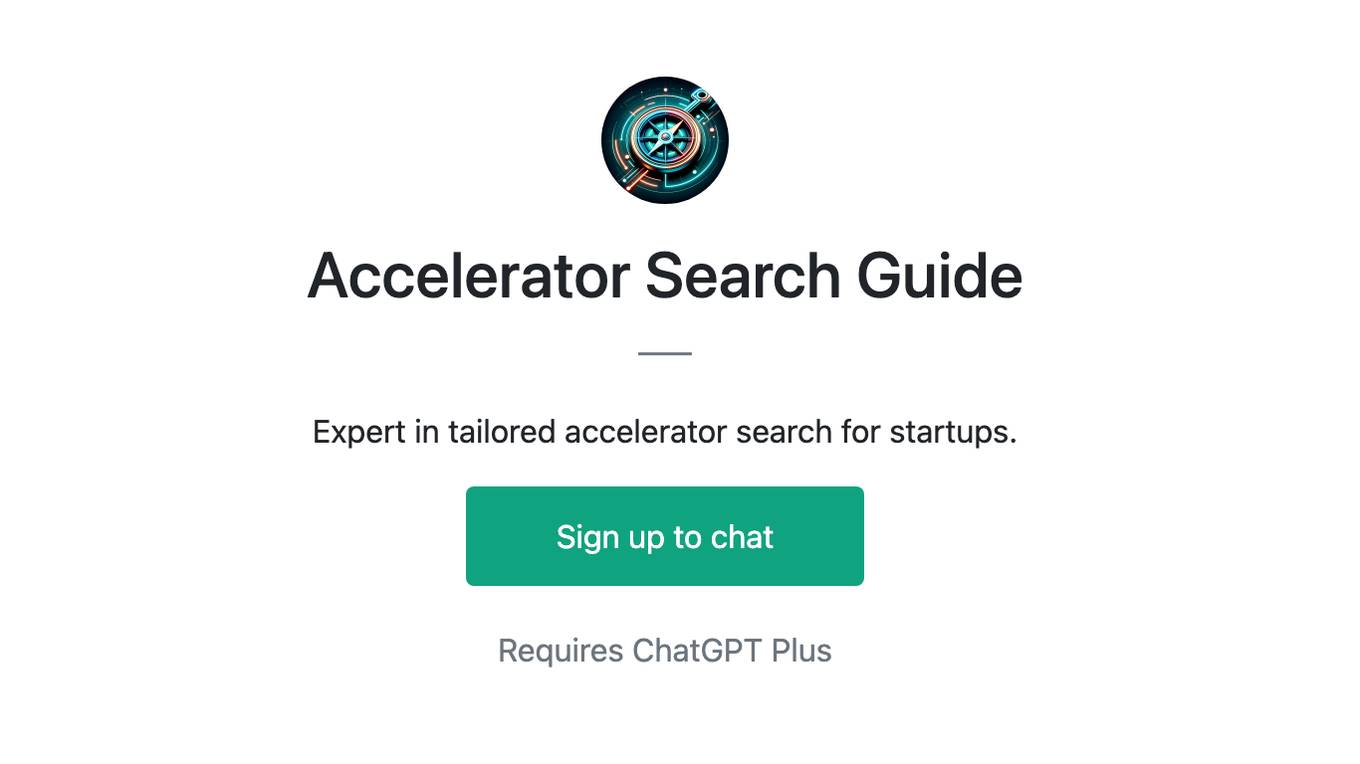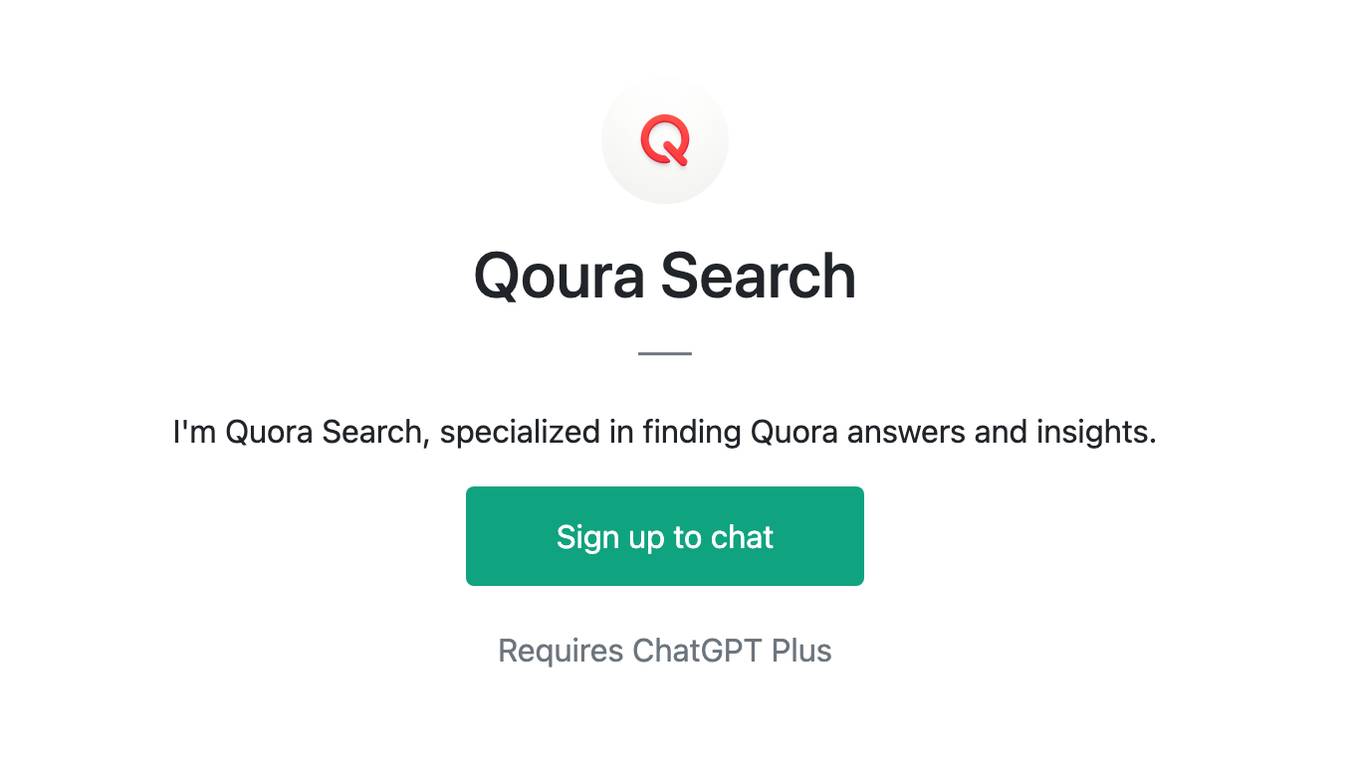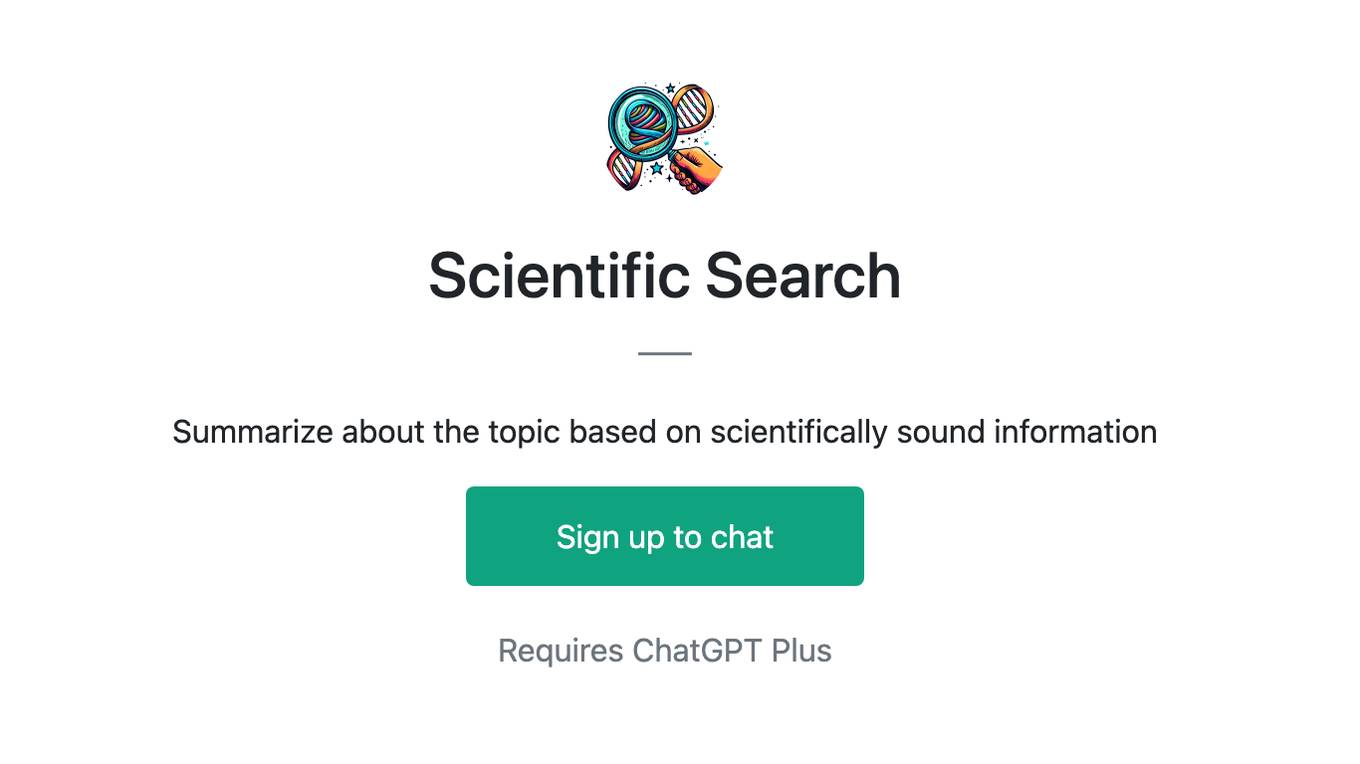Best AI tools for< search indexing >
20 - AI tool Sites
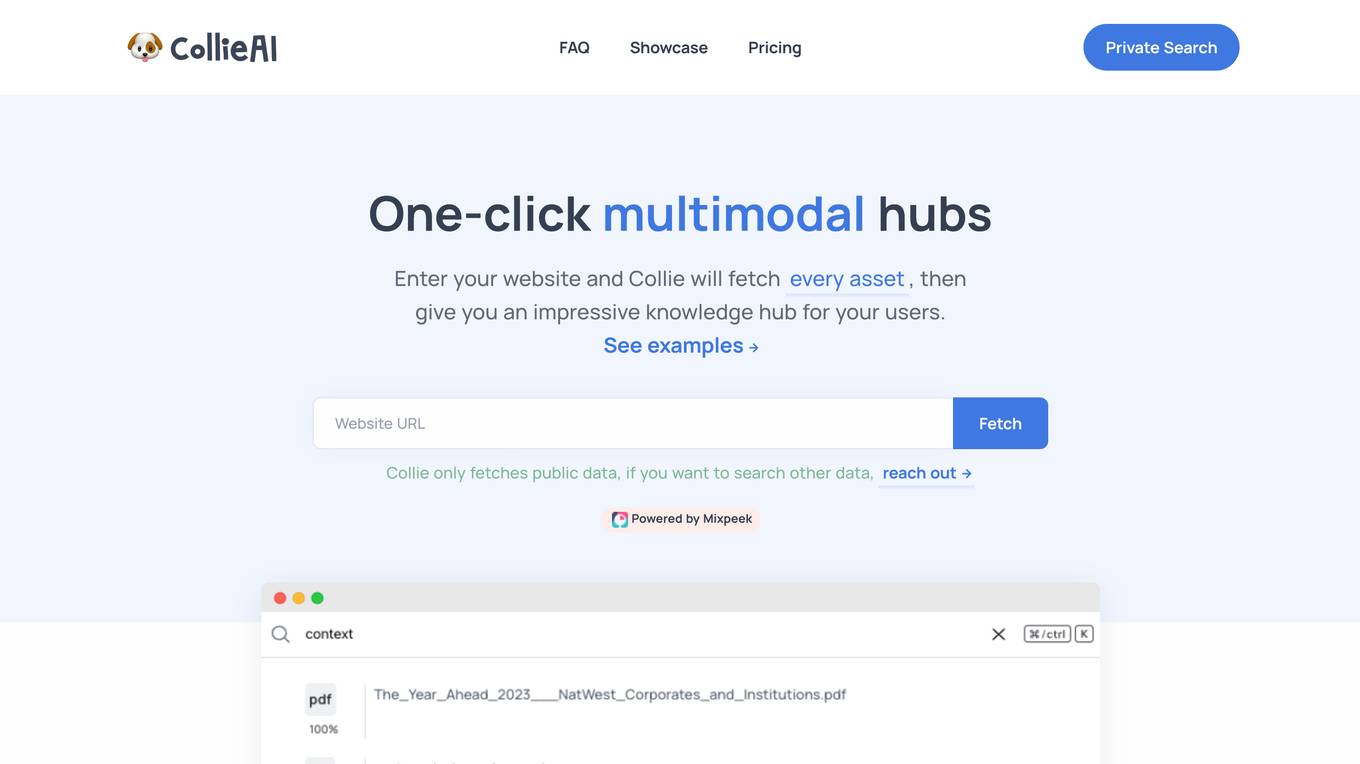
Collie
Collie is a one-click application that fetches every asset from your website to create an impressive knowledge hub for your users. It is an automated web scraping program that extracts content, media, and files from URLs and adds them to a searchable index. Collie supports various types of content like PDFs, images, videos, audio, HTML, and text. It offers a private embedded file search for select users in beta. The application is free for up to 1000 pages or files and provides search bar integration for websites.
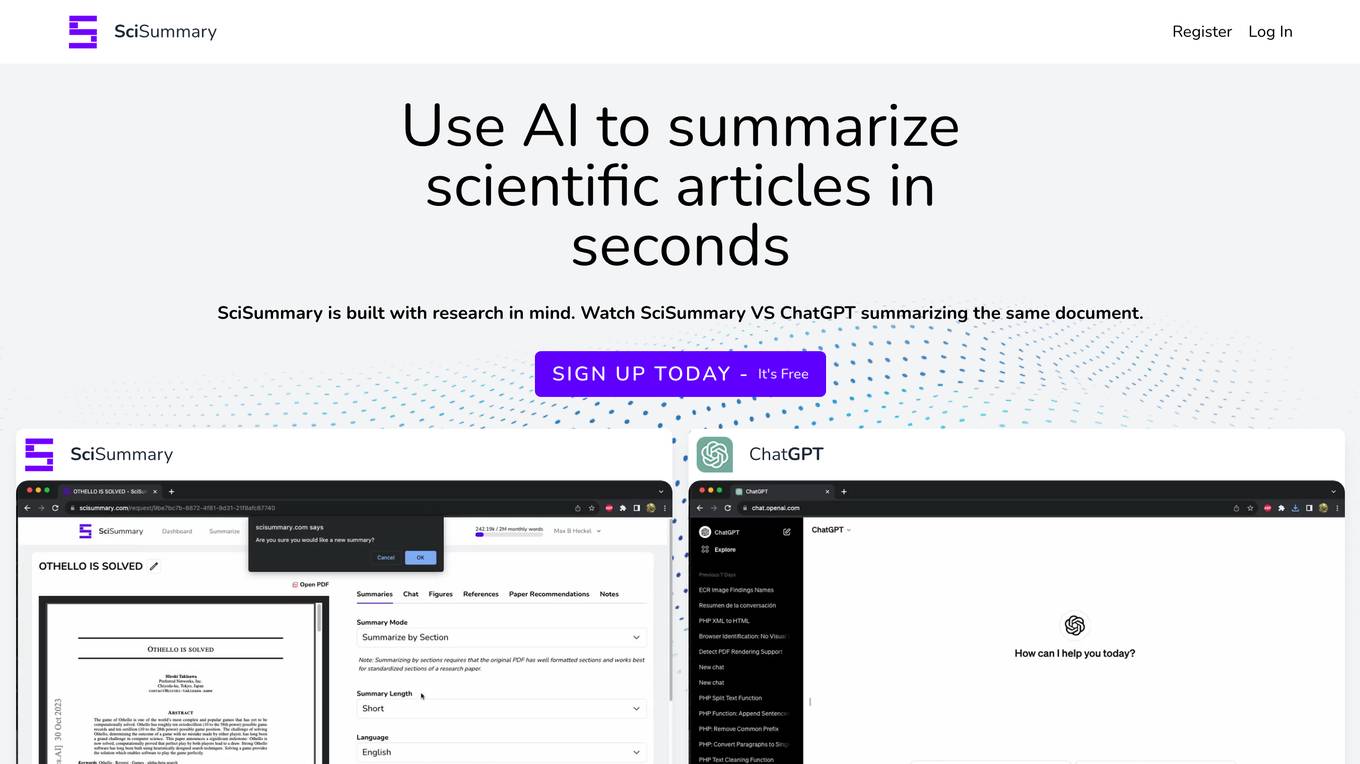
SciSummary
SciSummary is an AI-powered tool designed to summarize scientific articles and research papers quickly and efficiently. It utilizes cutting-edge AI technology, specifically GPT-3.5 and GPT-4 models, to provide users with concise summaries of complex scientific content. The platform caters to busy scientists, students, and enthusiasts who need to stay updated on the latest research findings but lack the time to read through lengthy articles. With features like semantic search indexing, bulk summaries, and unlimited article searches, SciSummary simplifies the process of digesting scientific literature.
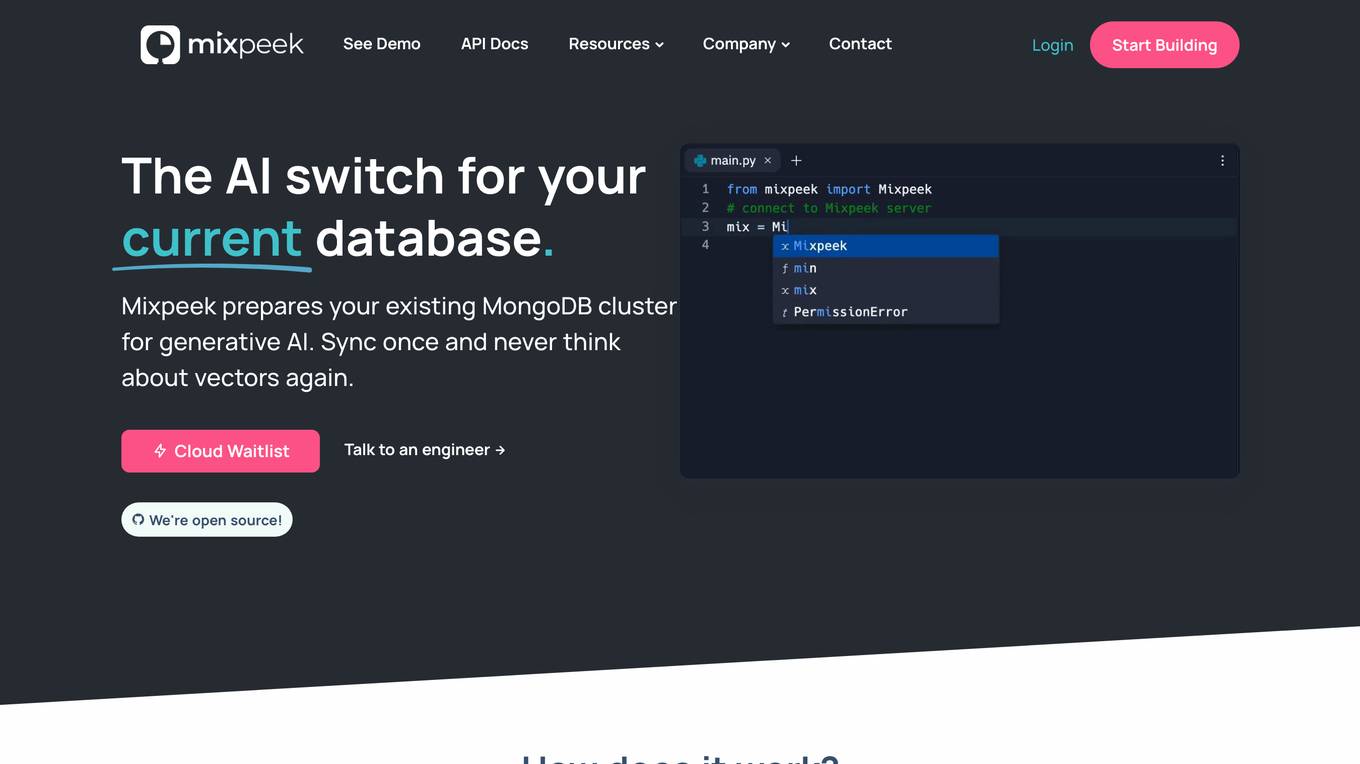
Mixpeek
Mixpeek is a powerful AI tool that brings artificial intelligence capabilities to your existing S3 bucket. It automatically extracts and structures unstructured objects such as documents, images, audio, and video, allowing you to focus on deriving insights rather than data preparation. With Mixpeek, you can connect your storage, create processing pipelines, build custom AI apps, and leverage real-time replication, extraction, embedding, inference, and scaling. The tool integrates seamlessly with various databases, cloud apps, content systems, object storage, and custom sources, offering a wide range of functionalities for data processing and analysis.

Caibooster
Caibooster is an AI-based Google indexing service that helps users boost their indexing rate and speed in Google search results. It offers different packages for submitting links to Google for indexing, with a high success rate of 60%-80%. The service is safe, professional, and affordable, ensuring that users' data is secured and their links are indexed efficiently. Caibooster continuously updates its indexing system to adapt to Google's changes, making it a reliable solution for anyone struggling with link indexing.
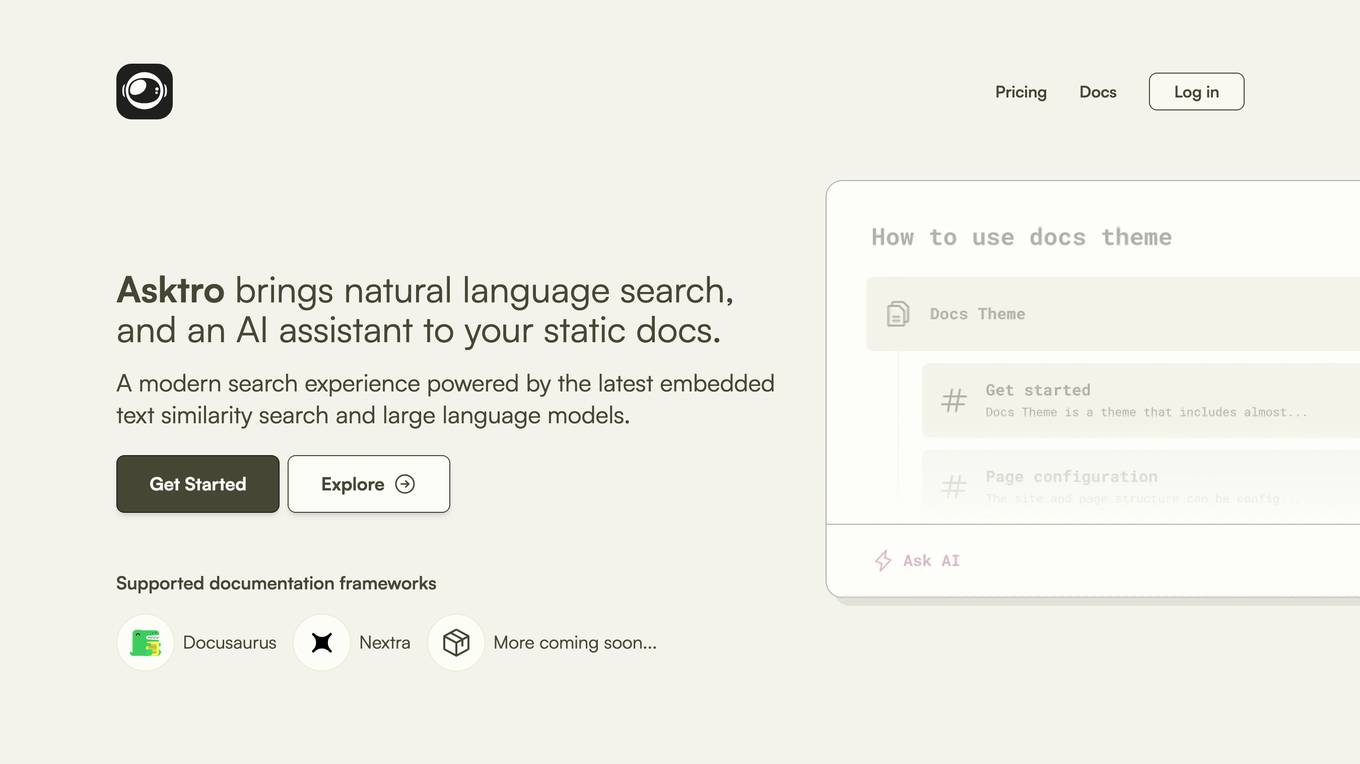
Asktro
Asktro is an AI tool that brings natural language search and an AI assistant to static documentation websites. It offers a modern search experience powered by embedded text similarity search and large language models. Asktro provides a ready-to-go search UI, plugin for data ingestion and indexing, documentation search, and an AI assistant for answering specific questions.
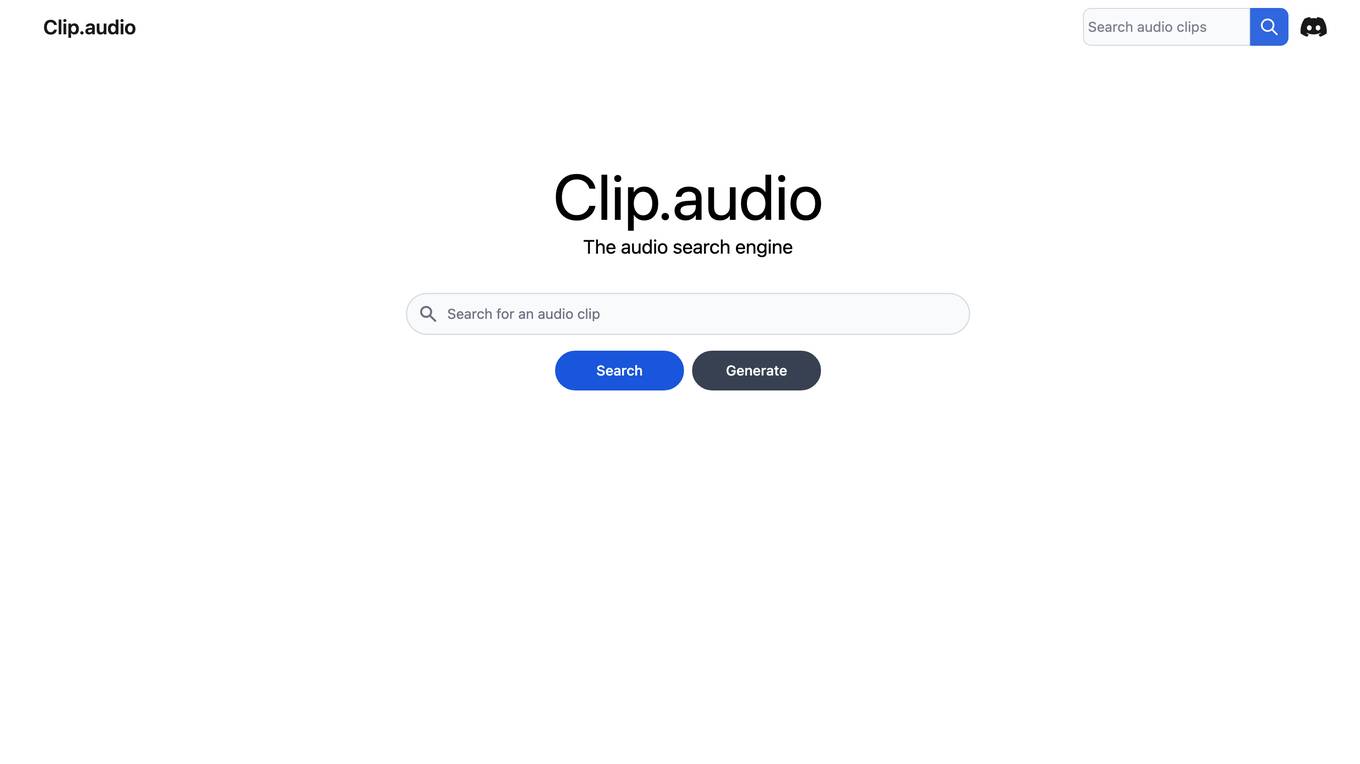
Clip.audio
Clip.audio is an AI-powered audio search engine that allows users to search for and discover audio clips from a variety of sources, including podcasts, music, and sound effects. The platform uses advanced machine learning algorithms to analyze and index audio content, making it easy for users to find the specific audio clips they are looking for.
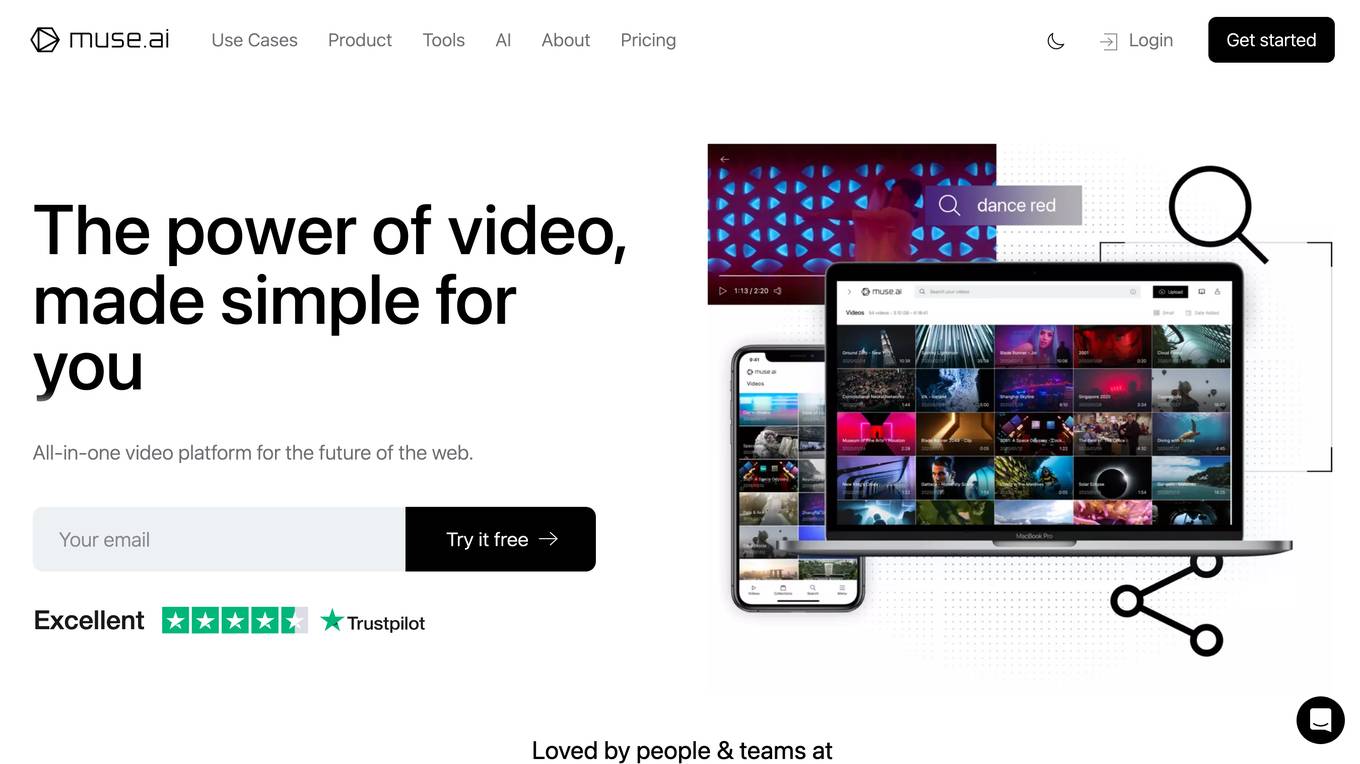
Muse.ai
Muse.ai is an all-in-one video platform that provides a suite of tools for video hosting, editing, searching, and monetization. It uses artificial intelligence (AI) to automatically transcribe, index, and label videos, making them easily searchable and discoverable. Muse.ai also offers a customizable video player, analytics, and integrations with other services. It is suitable for a wide range of users, including individuals, teams, businesses, and educational institutions.

Desktop Docs
Desktop Docs is an all-in-one platform designed to simplify file management by allowing users to browse, edit, and export media files. The application leverages AI technology to automate tasks such as searching for files based on their content, indexing files using machine learning models, and providing a seamless editing experience. Desktop Docs aims to streamline the creative process by offering a centralized solution for managing digital media.

AI Video Search Engine
The AI Video Search Engine is an innovative tool that allows users to index and search through videos using advanced artificial intelligence technology. It enables users to find specific content within a vast library of videos quickly and efficiently. With features like image generation and a focus on startups, this tool is designed to revolutionize the way we interact with video content. Powered by cutting-edge AI algorithms, this tool offers a glimpse into the future of video search capabilities.

Search Alkemy
Search Alkemy is a free AI-powered SEO keyword research and topic clustering tool that helps content marketers and SEOs discover high-performing keywords, analyze search intent, and create content that ranks. With Search Alkemy, you can:

LimeWire Search
LimeWire Search is an AI-powered platform that offers a range of creative tools to assist users in generating visual and audio content. Users can create abstract images, convert text to images, edit images, remove backgrounds, outpaint and inpaint images, and enhance image quality using AI upscaling. Additionally, LimeWire Search provides text-to-music features for creating music based on user input or uploaded images. The platform aims to empower users with AI technology to unleash their creativity and produce visually appealing content effortlessly.
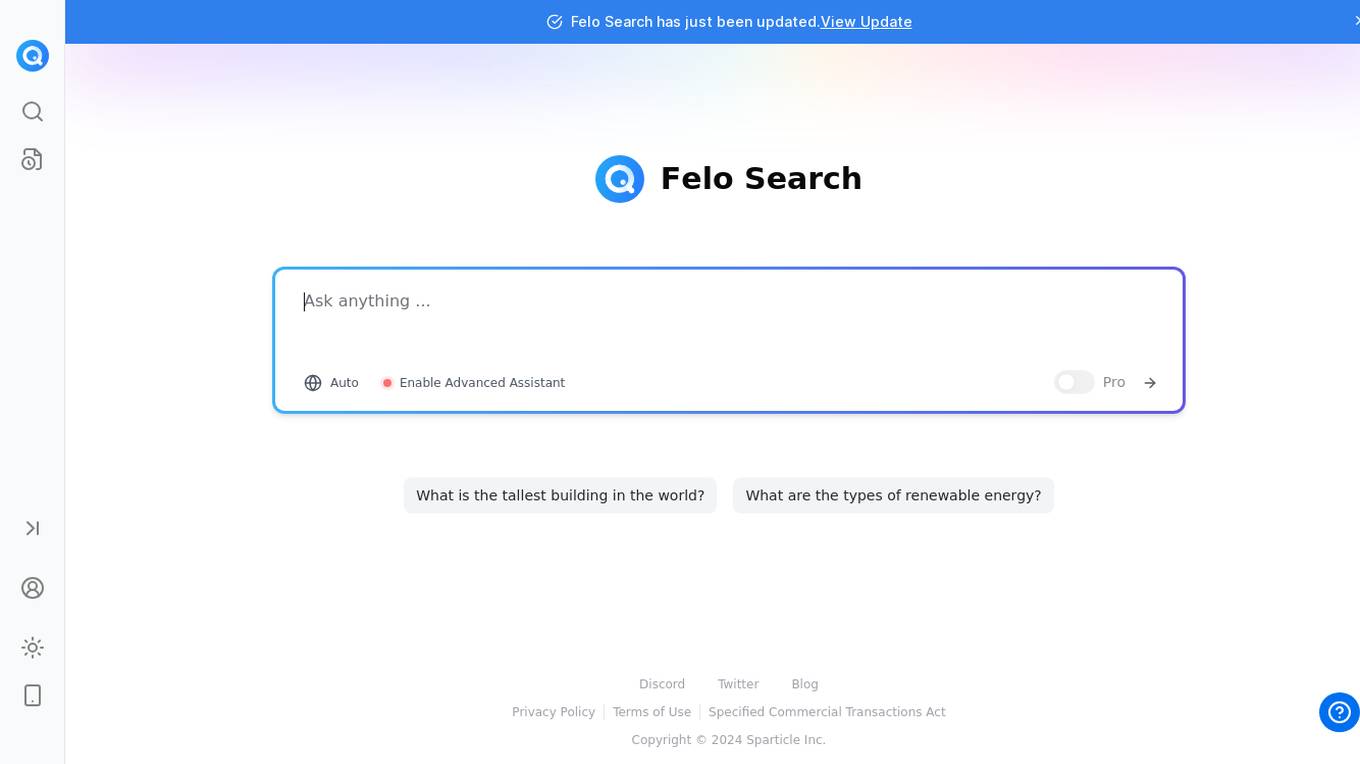
Felo Search
Felo Search is a free AI search engine developed by Sparticle Inc. It utilizes artificial intelligence technology to provide users with accurate and relevant search results. The platform is designed to enhance the search experience by understanding user queries and delivering personalized results. Felo Search aims to revolutionize the way people search for information online by leveraging AI algorithms to improve search efficiency and effectiveness.
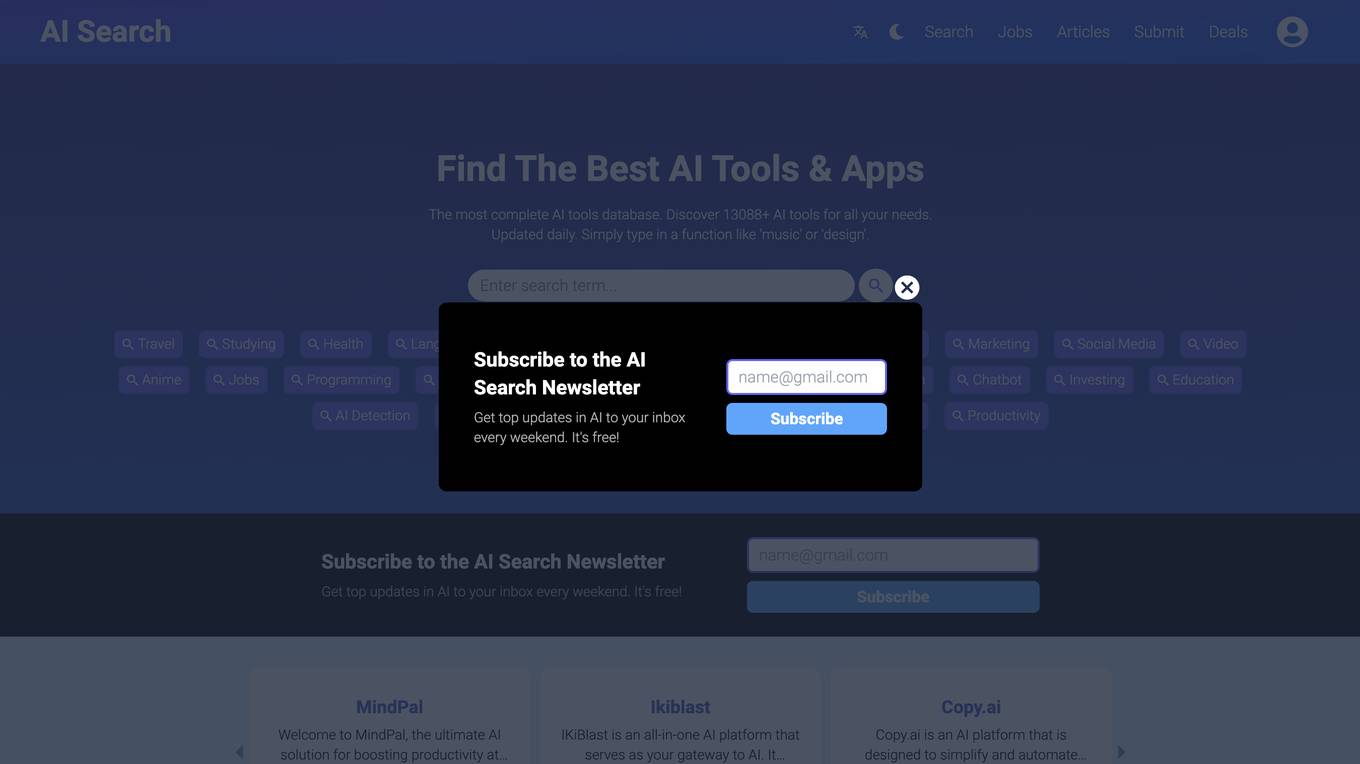
AI Search
AI Search is a comprehensive AI tools database that helps users discover and explore a wide range of AI tools and applications. With over 13000 AI tools listed and updated daily, AI Search provides a valuable resource for individuals and businesses seeking to leverage AI technologies. The platform allows users to search for AI tools based on specific functions or keywords, making it easy to find the right tool for their needs. AI Search also offers a newsletter service that delivers top updates in AI directly to users' inboxes every weekend.
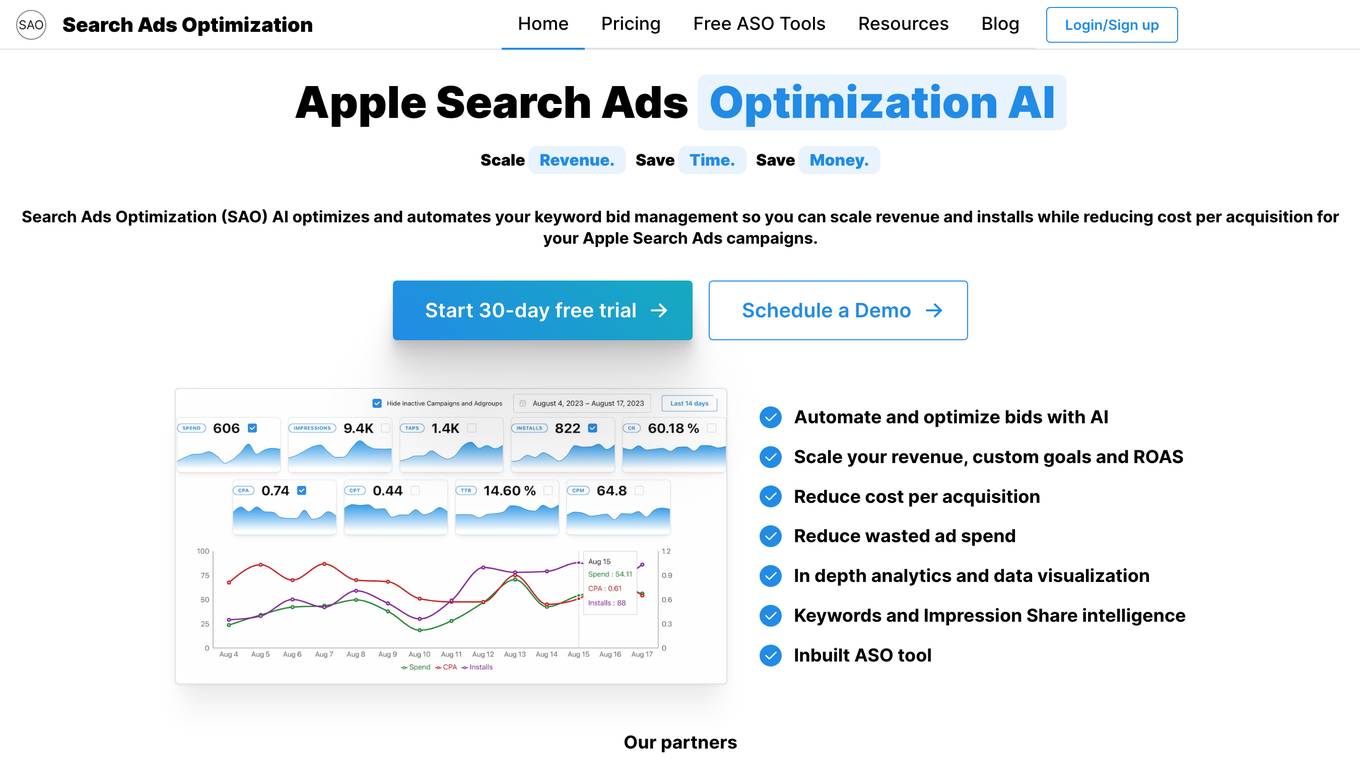
Apple Search Ads Optimization (SAO)
The Apple Search Ads Optimization (SAO) is an AI tool designed to optimize and automate keyword bid management for Apple Search Ads campaigns. It helps users scale revenue, increase installs, and reduce cost per acquisition. SAO offers advanced features such as full funnel view, in-depth analytics, and post-install attribution partnerships. Trusted by app companies worldwide, SAO AI provides real-time data automation to stay ahead of the competition. With easy setup and integration with attribution providers, SAO optimizes bids for maximum performance and offers insights into app store intelligence and competitor rankings.
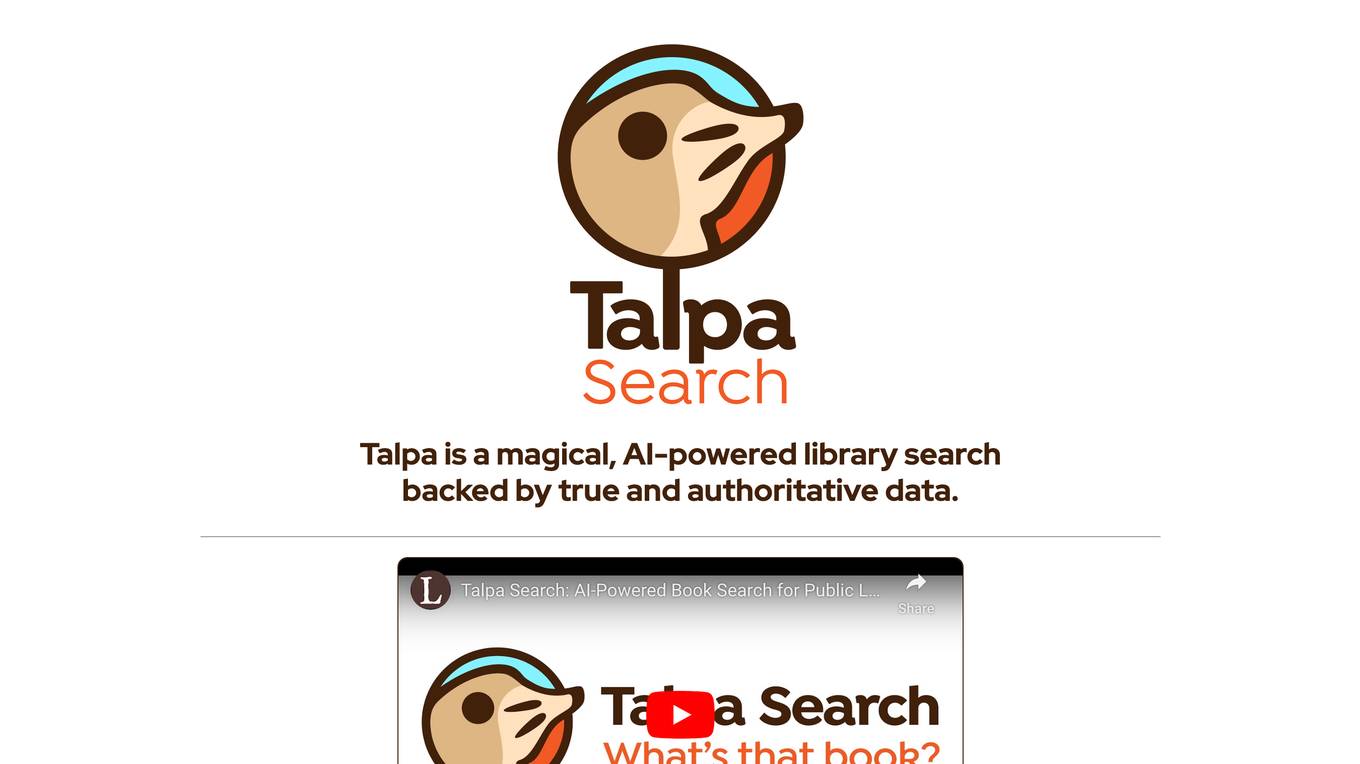
Talpa Search
Talpa is a search tool designed to help users find books and other media in a unique way. It allows users to search for specific books, genres, authors, and more. Talpa aims to provide a user-friendly experience for those looking to discover new literary works and media content.

BoCha AI Search
BoCha AI Search is a multi-modal AI search engine that provides instant answers to your queries. It leverages advanced AI technology to deliver accurate and comprehensive results, making it an indispensable tool for researchers, students, and professionals alike.
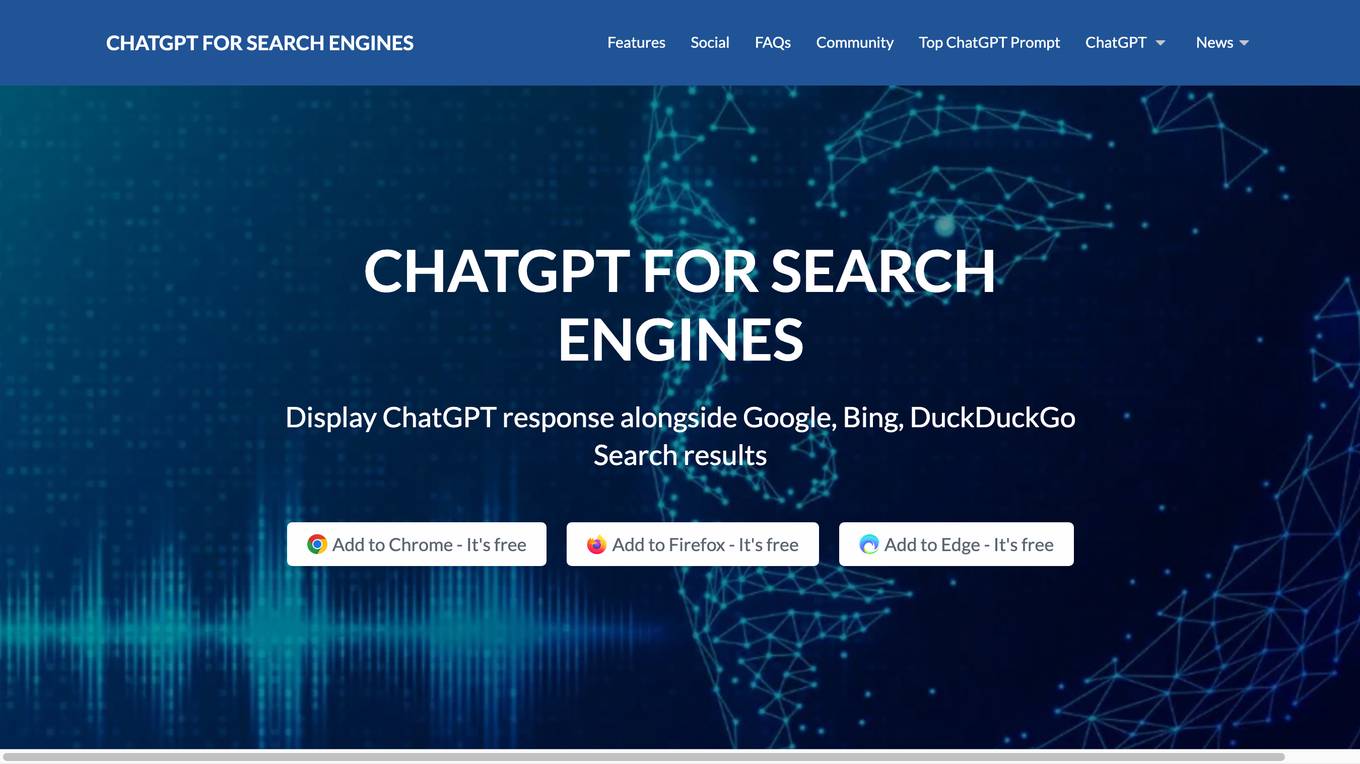
ChatGPT for Search Engines
ChatGPT for Search Engines is an extension that allows users to display ChatGPT responses alongside search engine results. It also provides a range of ChatGPT prompt templates to help users optimize their experiences with ChatGPT. The extension is available on popular browsers such as Google Chrome, Mozilla Firefox, and Microsoft Edge.
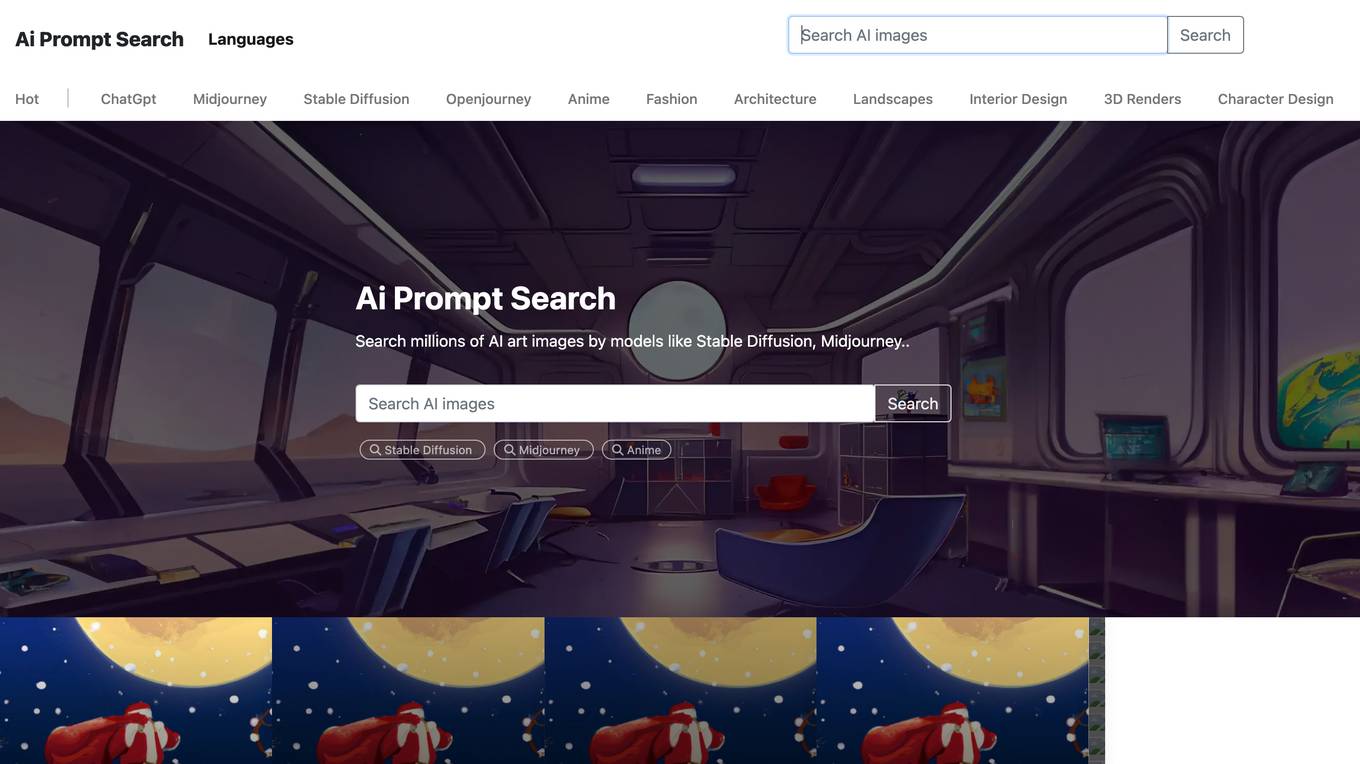
Ai Prompt Search
Ai Prompt Search is a website that provides users with a search engine for AI art prompts. The website includes prompts for various AI art models, including Stable Diffusion, Midjourney, and Openjourney. Users can search for prompts by topic, such as anime, fashion, architecture, landscapes, interior design, 3D renders, and character design. The website also includes a section with frequently asked questions about AI art prompts.
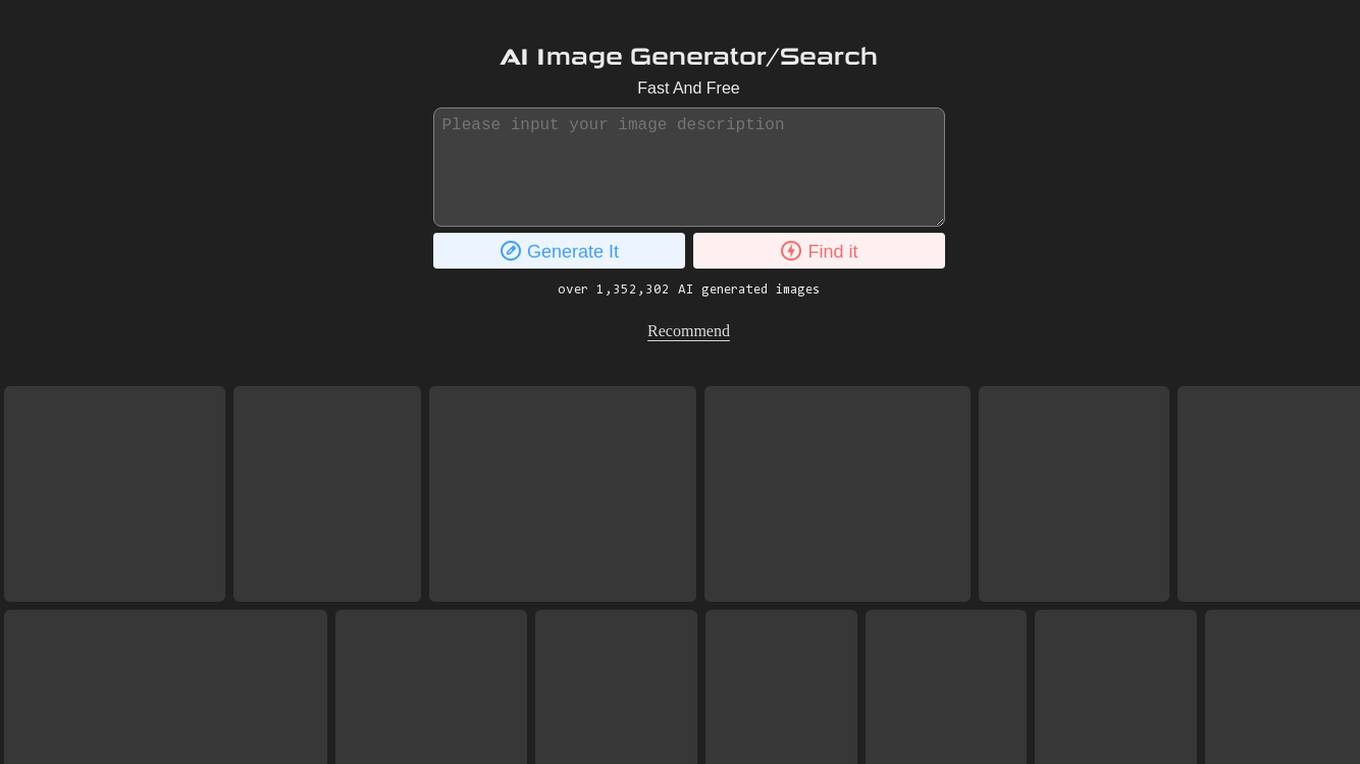
AI Image Generator/Search
This website provides an AI image generator and search engine that allows users to generate and find AI-generated images for free. The AI image generator can create images from text prompts, and the search engine can be used to find existing AI-generated images. The website is easy to use and does not require any registration.
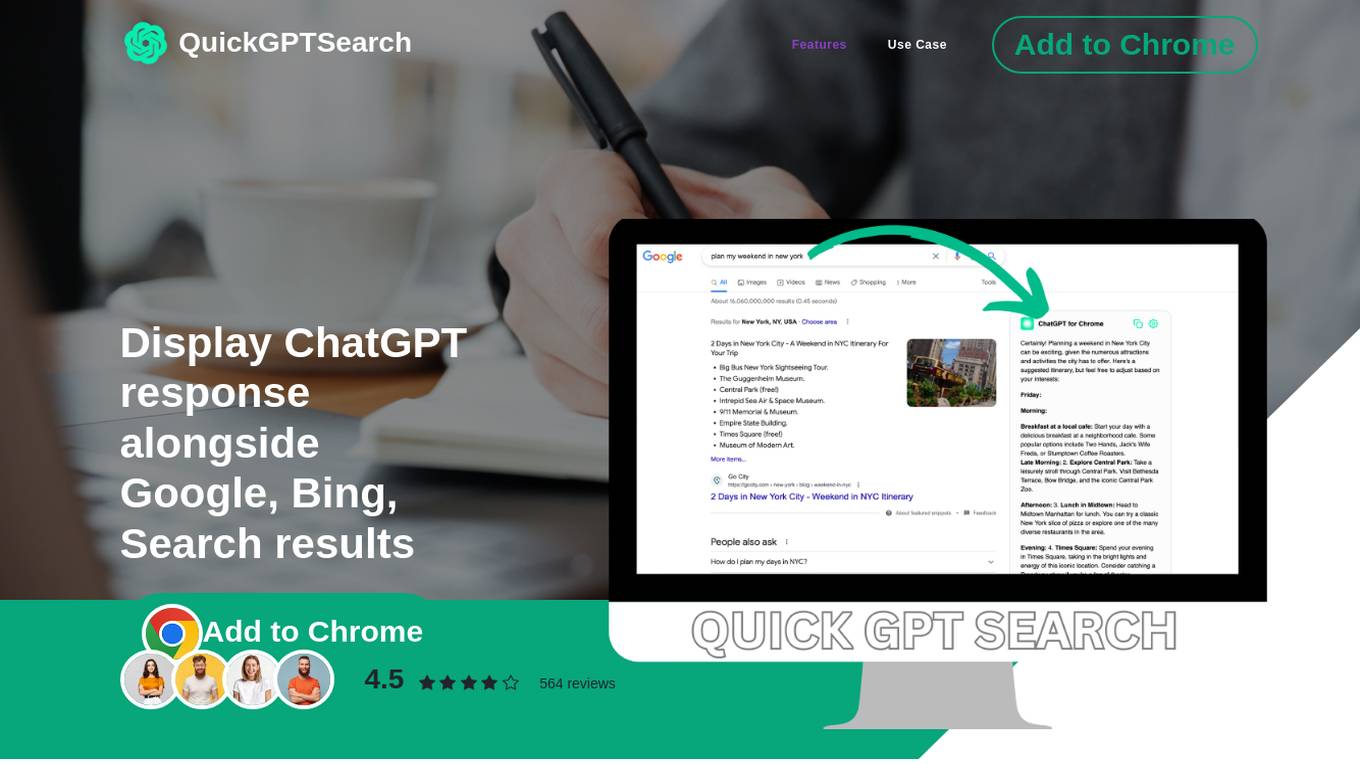
Quick GPT Search
Quick GPT Search is an AI-powered language model application that integrates with search engines to provide natural language responses to user queries. It utilizes OpenAI's ChatGPT to generate human-like writing and offer contextually appropriate answers. The extension allows users to access ChatGPT directly from search engine results, enabling seamless interaction with the language model. With features like Popup Mode, Trigger Settings, Dark Theme, and Code Syntax highlighting, Quick GPT Search enhances the search experience by simplifying information retrieval and promoting user engagement.
20 - Open Source AI Tools
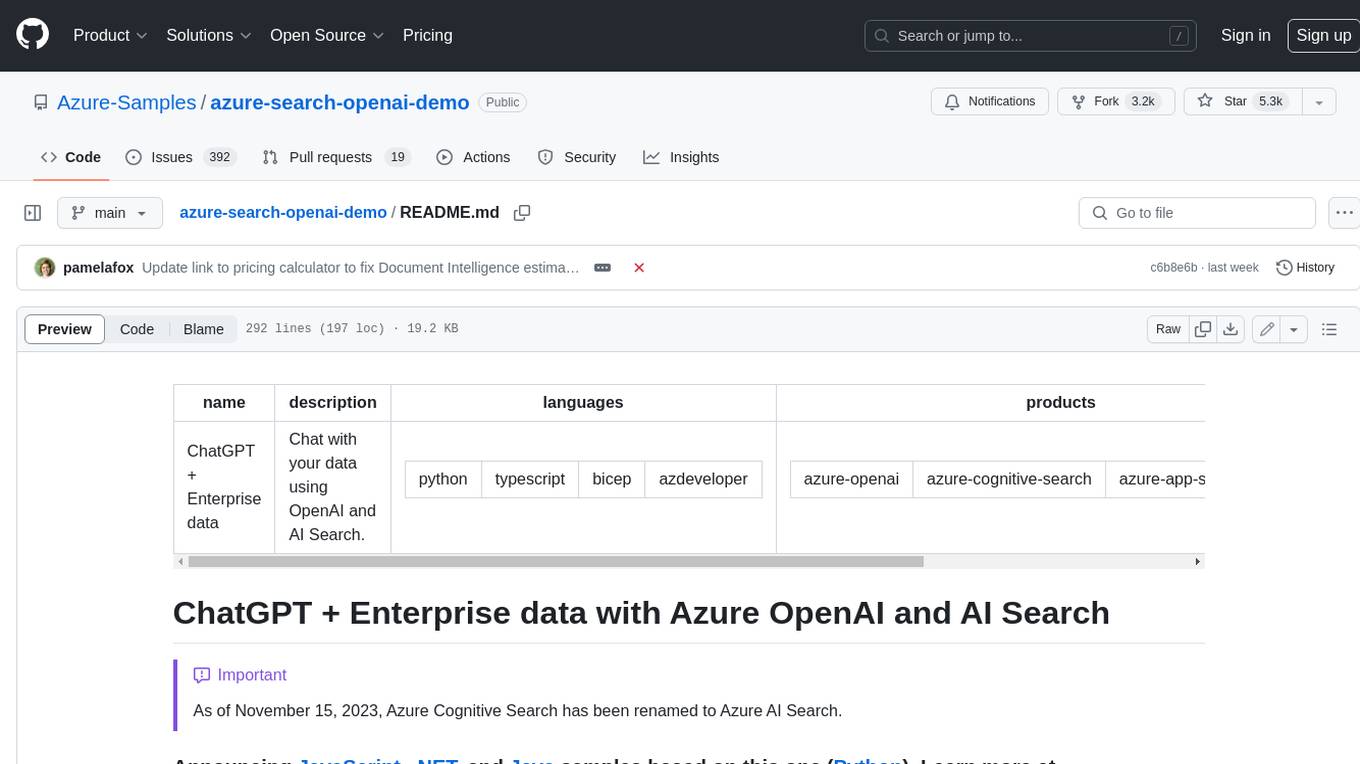
azure-search-openai-demo
This sample demonstrates a few approaches for creating ChatGPT-like experiences over your own data using the Retrieval Augmented Generation pattern. It uses Azure OpenAI Service to access a GPT model (gpt-35-turbo), and Azure AI Search for data indexing and retrieval. The repo includes sample data so it's ready to try end to end. In this sample application we use a fictitious company called Contoso Electronics, and the experience allows its employees to ask questions about the benefits, internal policies, as well as job descriptions and roles.
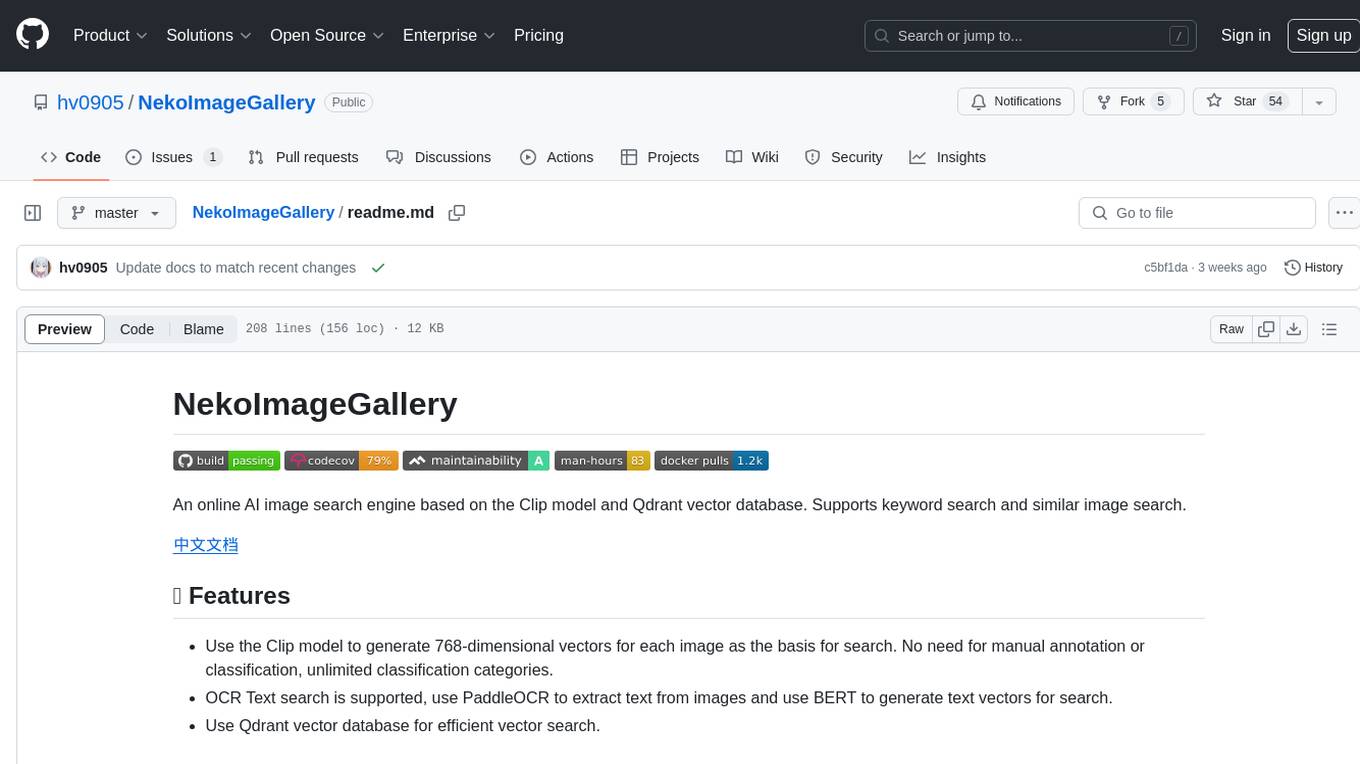
NekoImageGallery
NekoImageGallery is an online AI image search engine that utilizes the Clip model and Qdrant vector database. It supports keyword search and similar image search. The tool generates 768-dimensional vectors for each image using the Clip model, supports OCR text search using PaddleOCR, and efficiently searches vectors using the Qdrant vector database. Users can deploy the tool locally or via Docker, with options for metadata storage using Qdrant database or local file storage. The tool provides API documentation through FastAPI's built-in Swagger UI and can be used for tasks like image search, text extraction, and vector search.
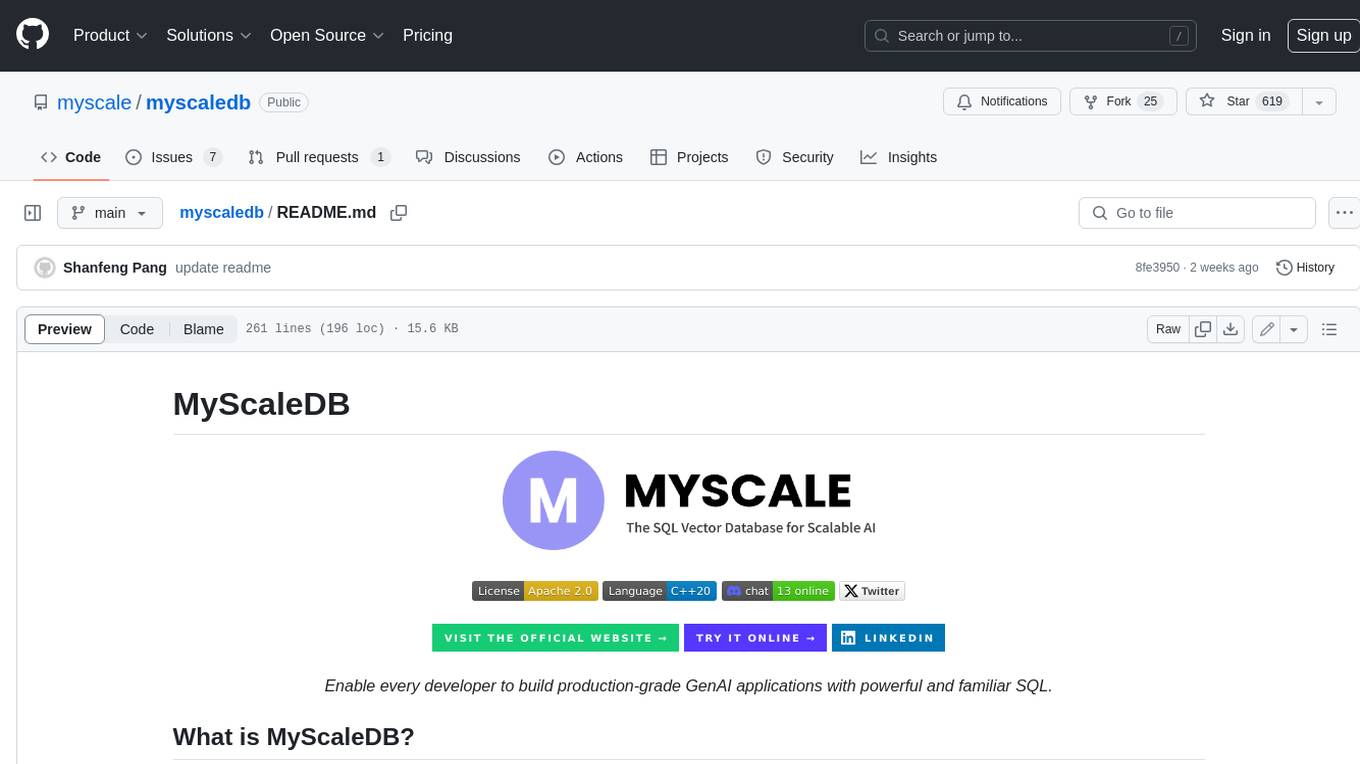
myscaledb
MyScaleDB is a SQL vector database designed for scalable AI applications, enabling developers to efficiently manage and process massive volumes of data using familiar SQL. It offers fast and efficient vector search, filtered search, and SQL-vector join queries. MyScaleDB is fully SQL-compatible and production-ready for AI applications, providing unmatched performance and scalability through cutting-edge OLAP architecture and advanced vector algorithms. Built on top of ClickHouse, it combines structured and vectorized data management for high accuracy and speed in filtered searches.
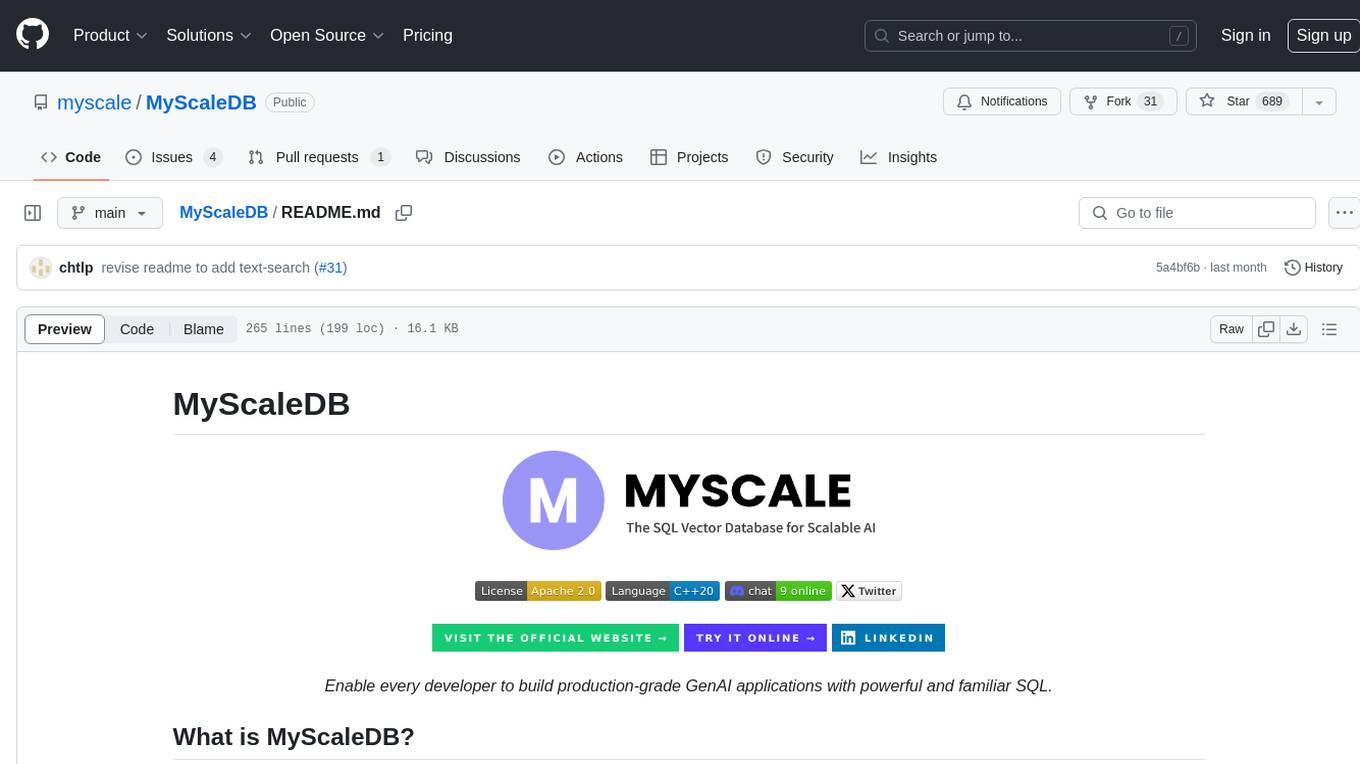
MyScaleDB
MyScaleDB is a SQL vector database optimized for AI applications, enabling developers to manage and process massive volumes of data efficiently. It offers fast and powerful vector search, filtered search, and SQL-vector join queries, making it fully SQL-compatible. MyScaleDB provides unmatched performance and scalability by leveraging cutting-edge OLAP database architecture and advanced vector algorithms. It is production-ready for AI applications, supporting structured data, text, vector, JSON, geospatial, and time-series data. MyScale Cloud offers fully-managed MyScaleDB with premium features on billion-scale data, making it cost-effective and simpler to use compared to specialized vector databases. Built on top of ClickHouse, MyScaleDB combines structured and vector search efficiently, ensuring high accuracy and performance in filtered search operations.

awesome-langchain
LangChain is an amazing framework to get LLM projects done in a matter of no time, and the ecosystem is growing fast. Here is an attempt to keep track of the initiatives around LangChain. Subscribe to the newsletter to stay informed about the Awesome LangChain. We send a couple of emails per month about the articles, videos, projects, and tools that grabbed our attention Contributions welcome. Add links through pull requests or create an issue to start a discussion. Please read the contribution guidelines before contributing.

azure-search-openai-javascript
This sample demonstrates a few approaches for creating ChatGPT-like experiences over your own data using the Retrieval Augmented Generation pattern. It uses Azure OpenAI Service to access the ChatGPT model (gpt-35-turbo), and Azure AI Search for data indexing and retrieval.
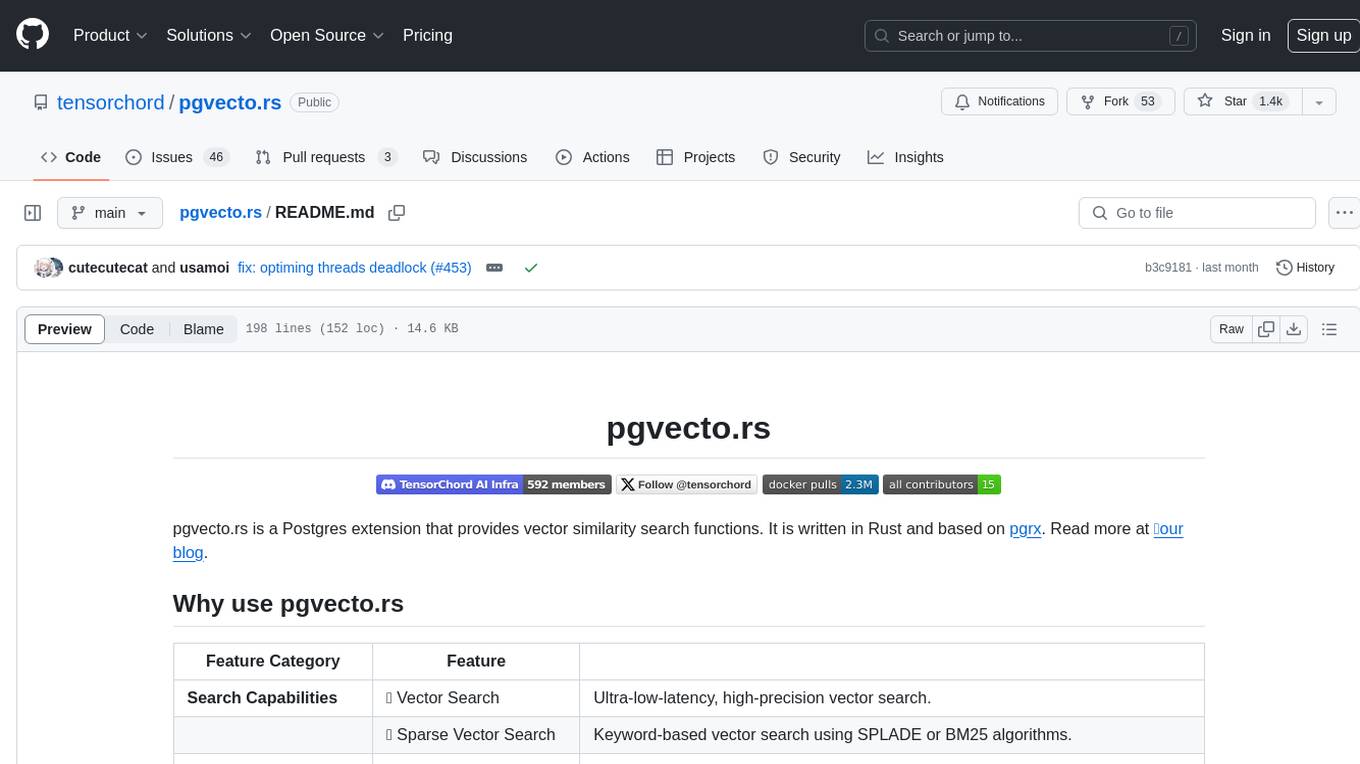
pgvecto.rs
pgvecto.rs is a Postgres extension written in Rust that provides vector similarity search functions. It offers ultra-low-latency, high-precision vector search capabilities, including sparse vector search and full-text search. With complete SQL support, async indexing, and easy data management, it simplifies data handling. The extension supports various data types like FP16/INT8, binary vectors, and Matryoshka embeddings. It ensures system performance with production-ready features, high availability, and resource efficiency. Security and permissions are managed through easy access control. The tool allows users to create tables with vector columns, insert vector data, and calculate distances between vectors using different operators. It also supports half-precision floating-point numbers for better performance and memory usage optimization.
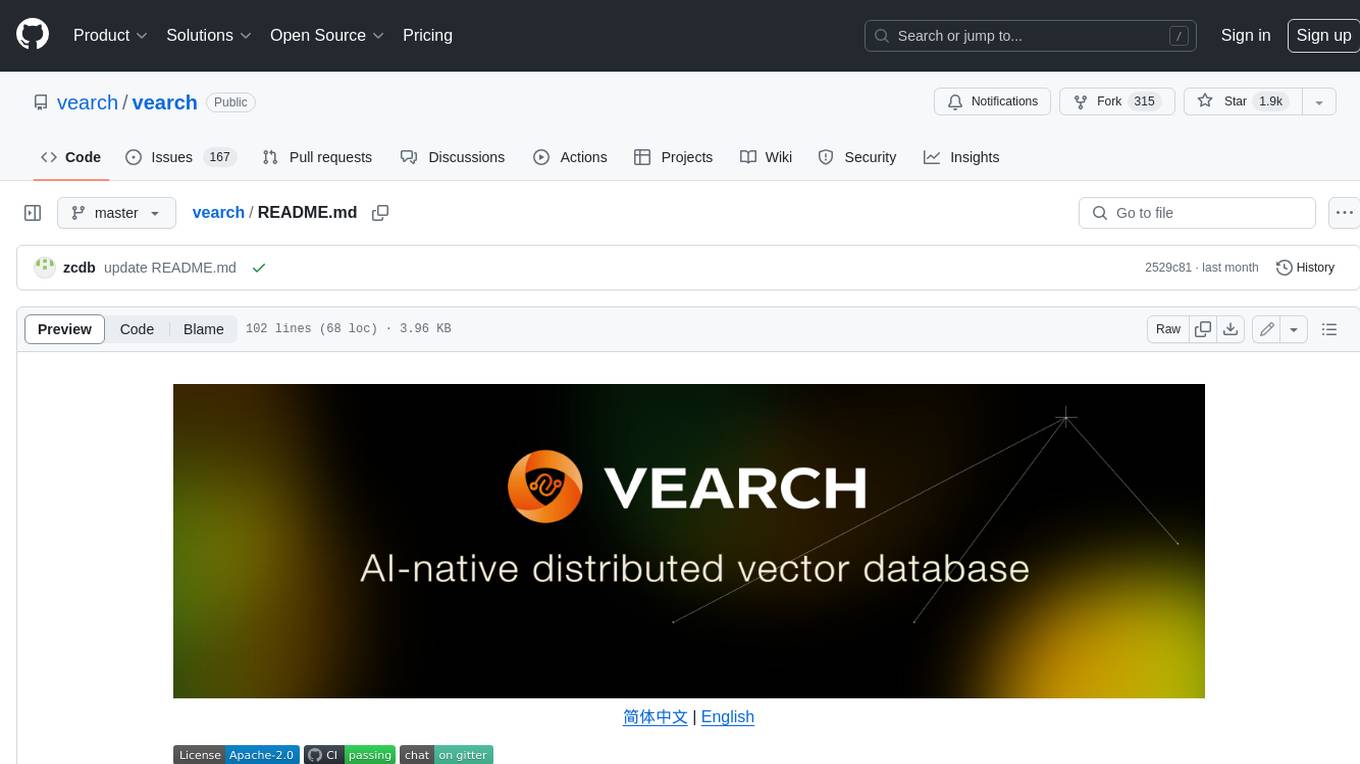
vearch
Vearch is a cloud-native distributed vector database designed for efficient similarity search of embedding vectors in AI applications. It supports hybrid search with vector search and scalar filtering, offers fast vector retrieval from millions of objects in milliseconds, and ensures scalability and reliability through replication and elastic scaling out. Users can deploy Vearch cluster on Kubernetes, add charts from the repository or locally, start with Docker-compose, or compile from source code. The tool includes components like Master for schema management, Router for RESTful API, and PartitionServer for hosting document partitions with raft-based replication. Vearch can be used for building visual search systems for indexing images and offers a Python SDK for easy installation and usage. The tool is suitable for AI developers and researchers looking for efficient vector search capabilities in their applications.
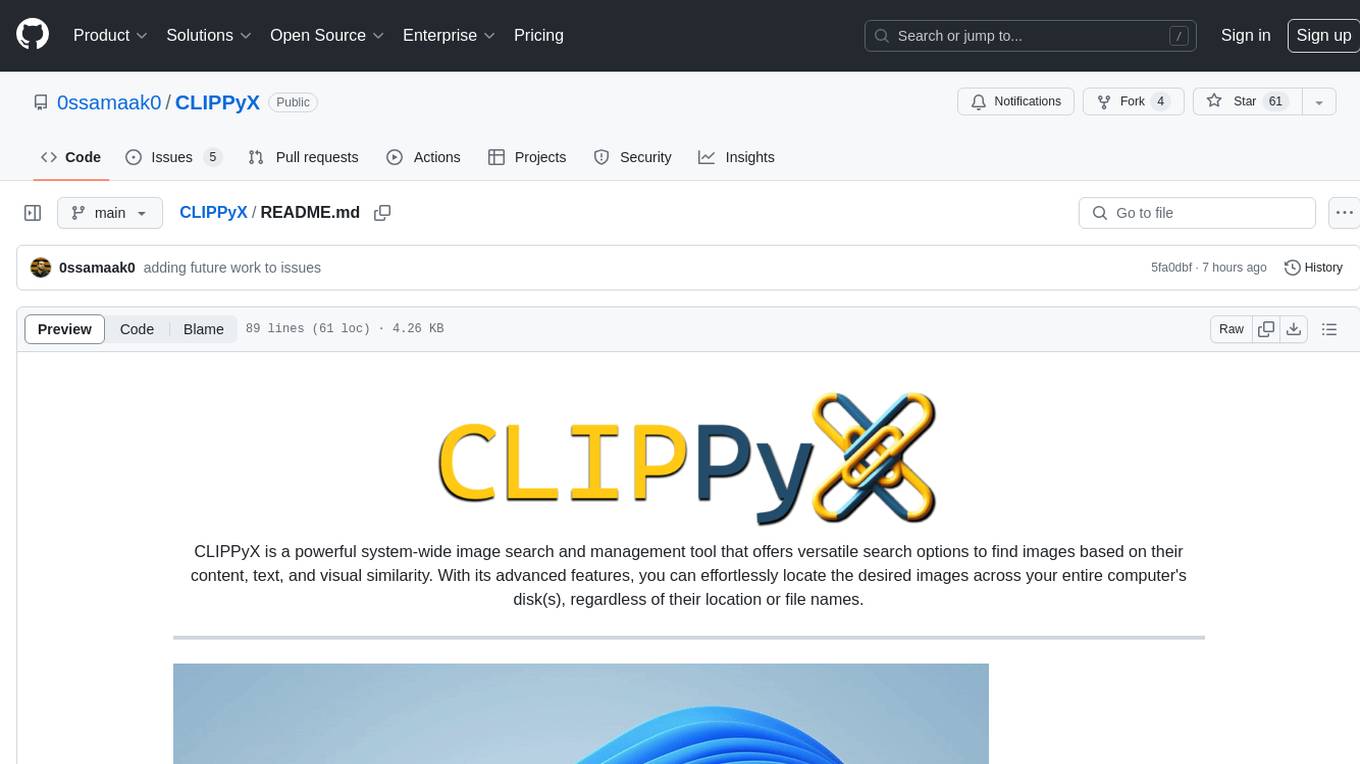
CLIPPyX
CLIPPyX is a powerful system-wide image search and management tool that offers versatile search options to find images based on their content, text, and visual similarity. With advanced features, users can effortlessly locate desired images across their entire computer's disk(s), regardless of their location or file names. The tool utilizes OpenAI's CLIP for image embeddings and text-based search, along with OCR for extracting text from images. It also employs Voidtools Everything SDK to list paths of all images on the system. CLIPPyX server receives search queries and queries collections of image embeddings and text embeddings to return relevant images.
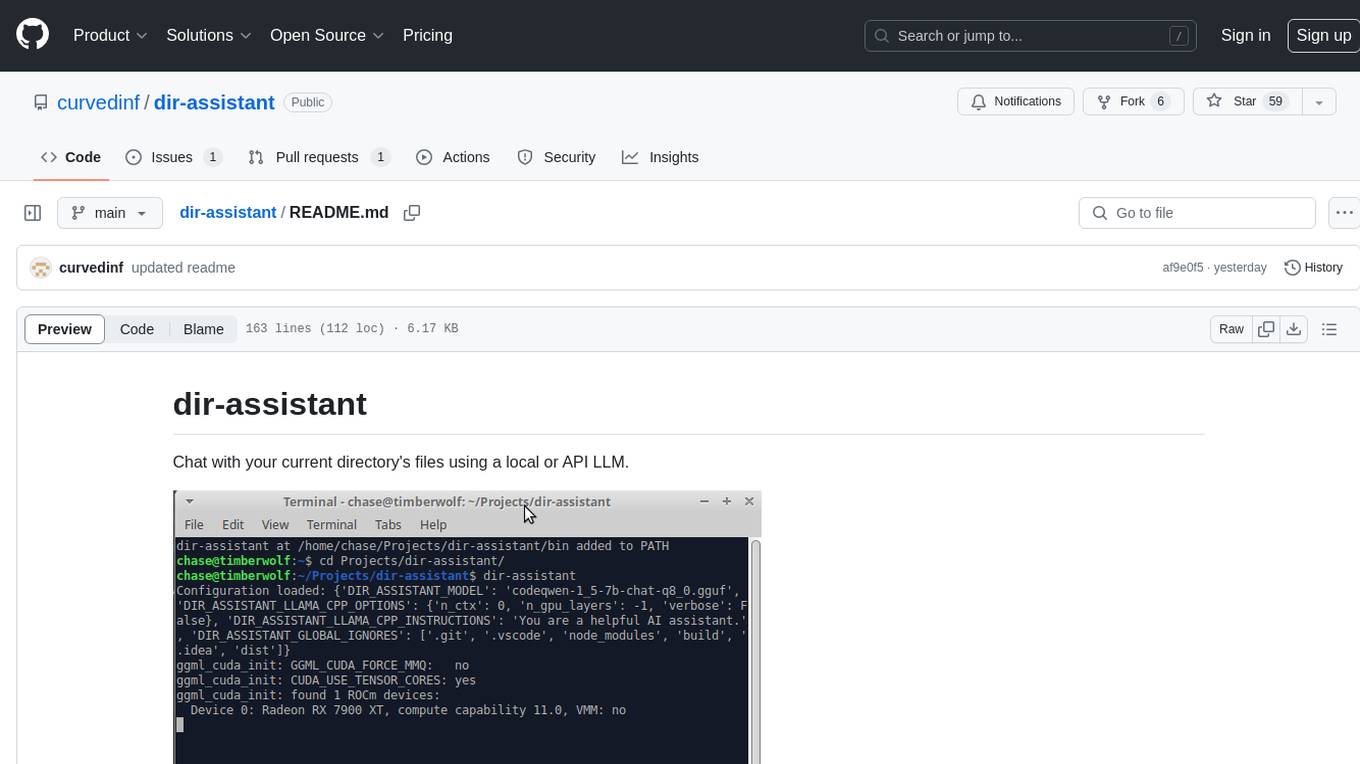
dir-assistant
Dir-assistant is a tool that allows users to interact with their current directory's files using local or API Language Models (LLMs). It supports various platforms and provides API support for major LLM APIs. Users can configure and customize their local LLMs and API LLMs using the tool. Dir-assistant also supports model downloads and configurations for efficient usage. It is designed to enhance file interaction and retrieval using advanced language models.
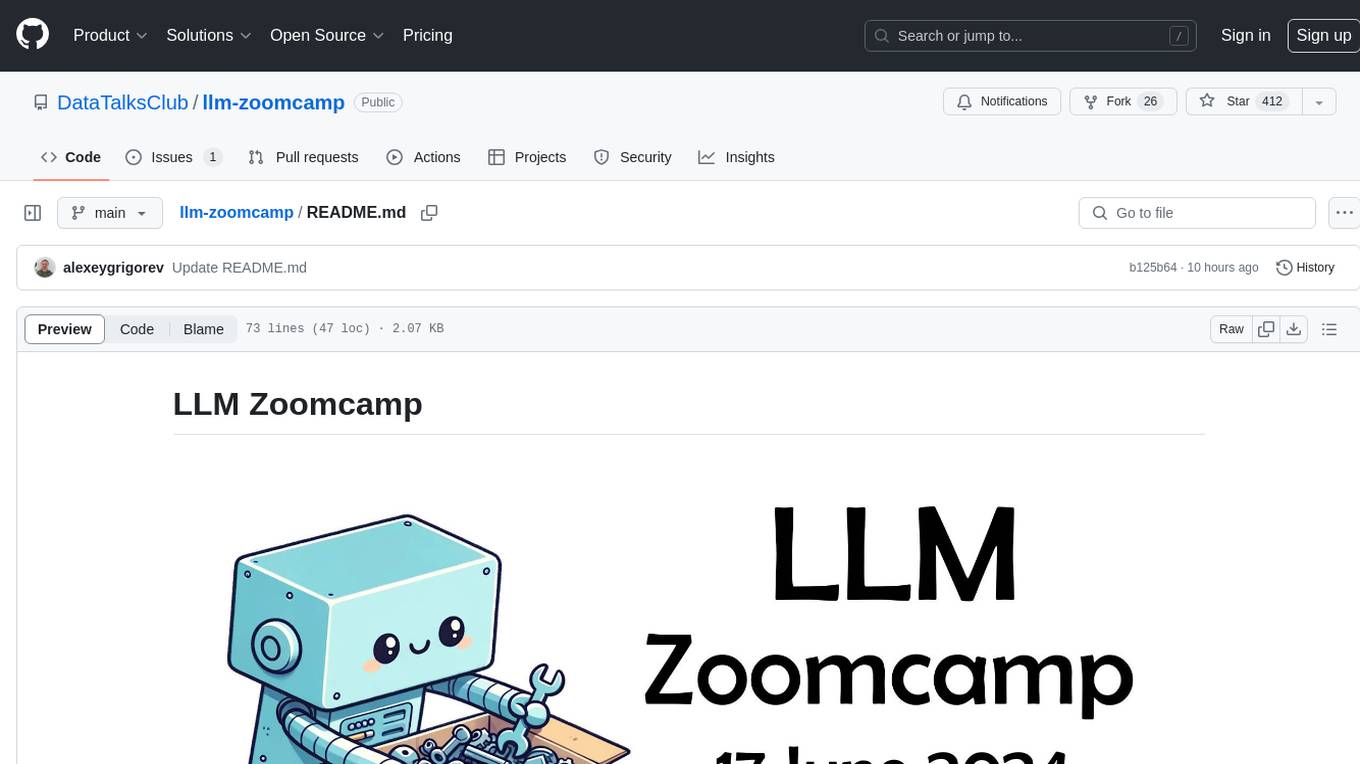
llm-zoomcamp
LLM Zoomcamp is a free online course focusing on real-life applications of Large Language Models (LLMs). Over 10 weeks, participants will learn to build an AI bot capable of answering questions based on a knowledge base. The course covers topics such as LLMs, RAG, open-source LLMs, vector databases, orchestration, monitoring, and advanced RAG systems. Pre-requisites include comfort with programming, Python, and the command line, with no prior exposure to AI or ML required. The course features a pre-course workshop and is led by instructors Alexey Grigorev and Magdalena Kuhn, with support from sponsors and partners.
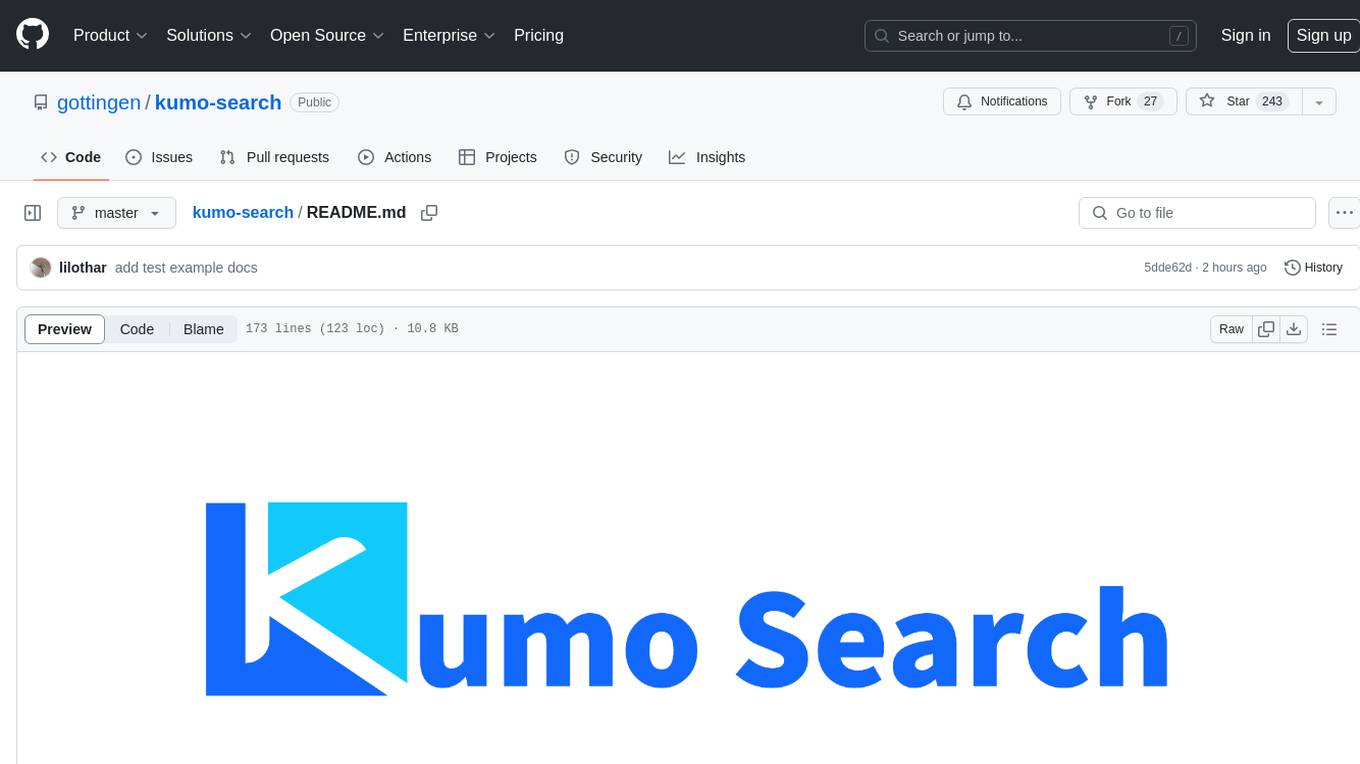
kumo-search
Kumo search is an end-to-end search engine framework that supports full-text search, inverted index, forward index, sorting, caching, hierarchical indexing, intervention system, feature collection, offline computation, storage system, and more. It runs on the EA (Elastic automic infrastructure architecture) platform, enabling engineering automation, service governance, real-time data, service degradation, and disaster recovery across multiple data centers and clusters. The framework aims to provide a ready-to-use search engine framework to help users quickly build their own search engines. Users can write business logic in Python using the AOT compiler in the project, which generates C++ code and binary dynamic libraries for rapid iteration of the search engine.
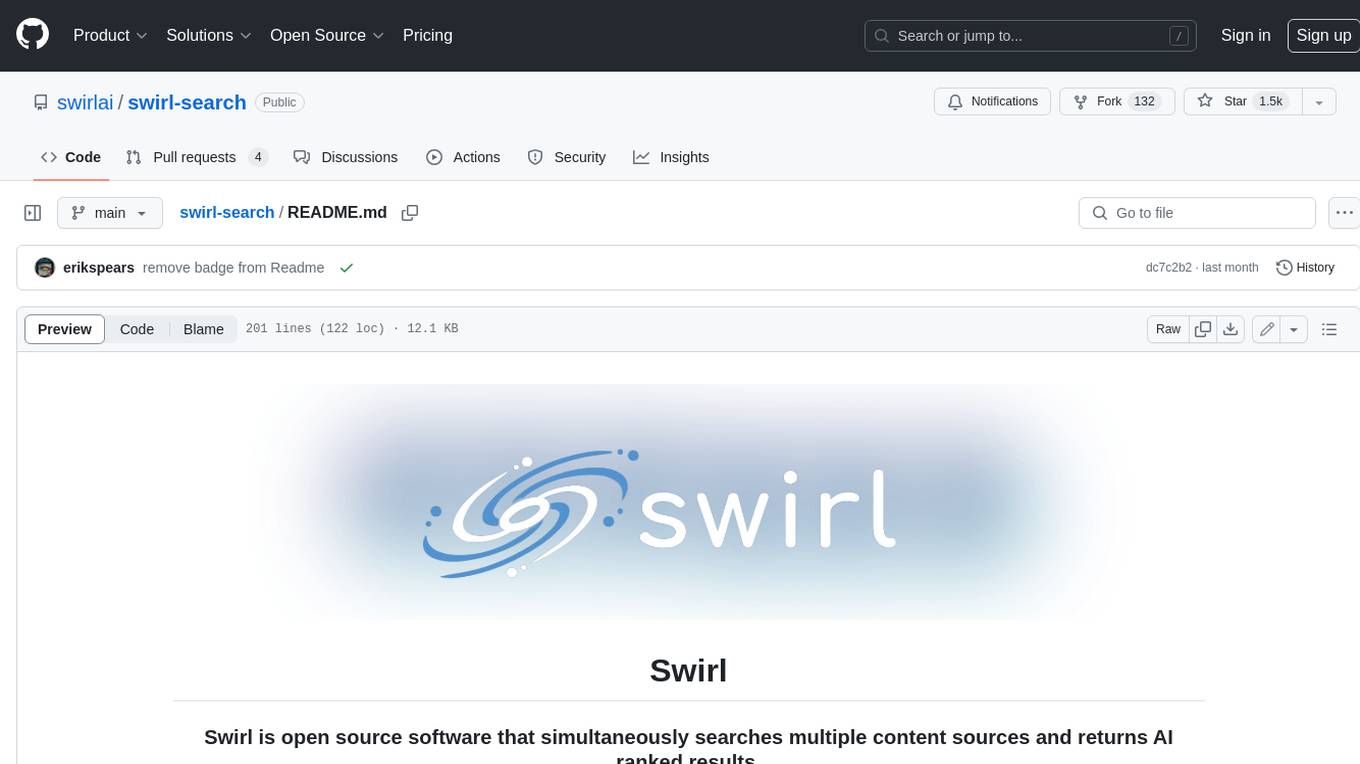
swirl-search
Swirl is an open-source software that allows users to simultaneously search multiple content sources and receive AI-ranked results. It connects to various data sources, including databases, public data services, and enterprise sources, and utilizes AI and LLMs to generate insights and answers based on the user's data. Swirl is easy to use, requiring only the download of a YML file, starting in Docker, and searching with Swirl. Users can add credentials to preloaded SearchProviders to access more sources. Swirl also offers integration with ChatGPT as a configured AI model. It adapts and distributes user queries to anything with a search API, re-ranking the unified results using Large Language Models without extracting or indexing anything. Swirl includes five Google Programmable Search Engines (PSEs) to get users up and running quickly. Key features of Swirl include Microsoft 365 integration, SearchProvider configurations, query adaptation, synchronous or asynchronous search federation, optional subscribe feature, pipelining of Processor stages, results stored in SQLite3 or PostgreSQL, built-in Query Transformation support, matching on word stems and handling of stopwords, duplicate detection, re-ranking of unified results using Cosine Vector Similarity, result mixers, page through all results requested, sample data sets, optional spell correction, optional search/result expiration service, easily extensible Connector and Mixer objects, and a welcoming community for collaboration and support.
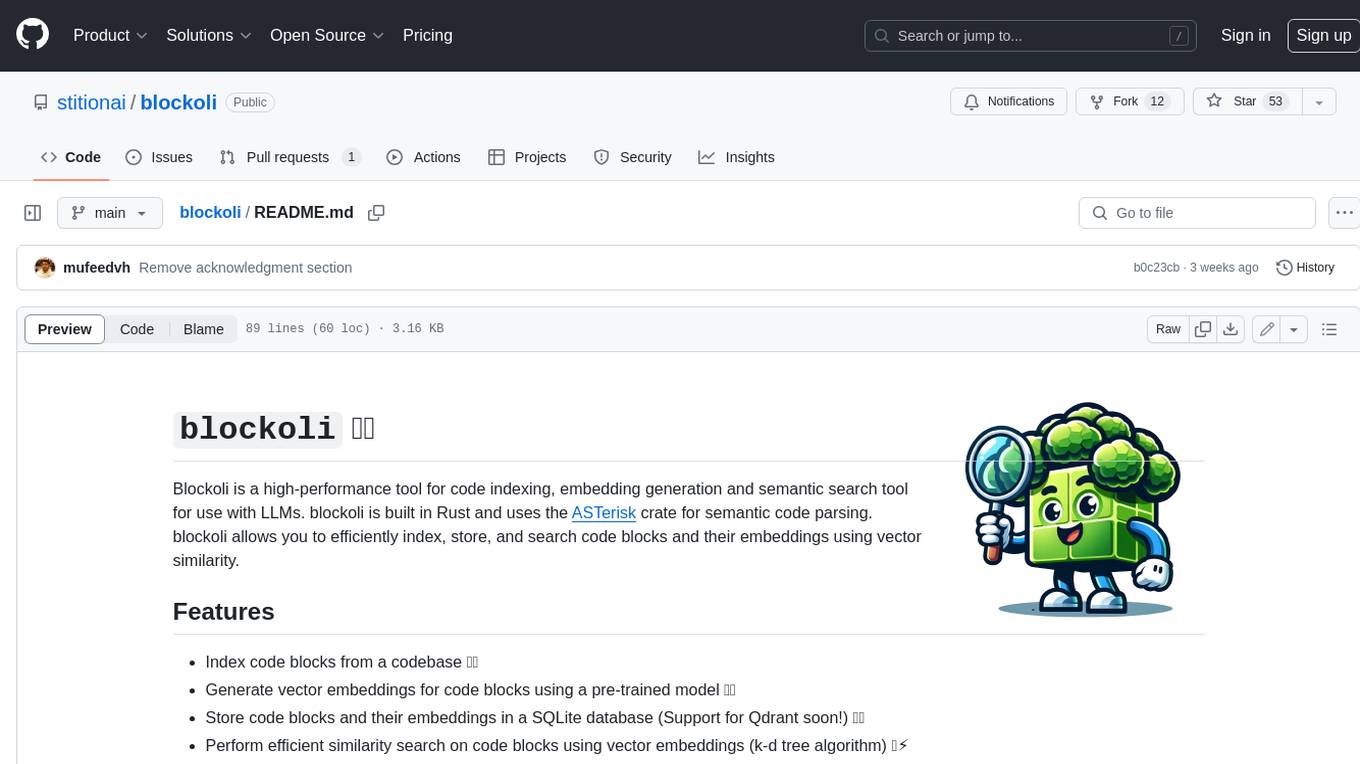
blockoli
Blockoli is a high-performance tool for code indexing, embedding generation, and semantic search tool for use with LLMs. It is built in Rust and uses the ASTerisk crate for semantic code parsing. Blockoli allows you to efficiently index, store, and search code blocks and their embeddings using vector similarity. Key features include indexing code blocks from a codebase, generating vector embeddings for code blocks using a pre-trained model, storing code blocks and their embeddings in a SQLite database, performing efficient similarity search on code blocks using vector embeddings, providing a REST API for easy integration with other tools and platforms, and being fast and memory-efficient due to its implementation in Rust.
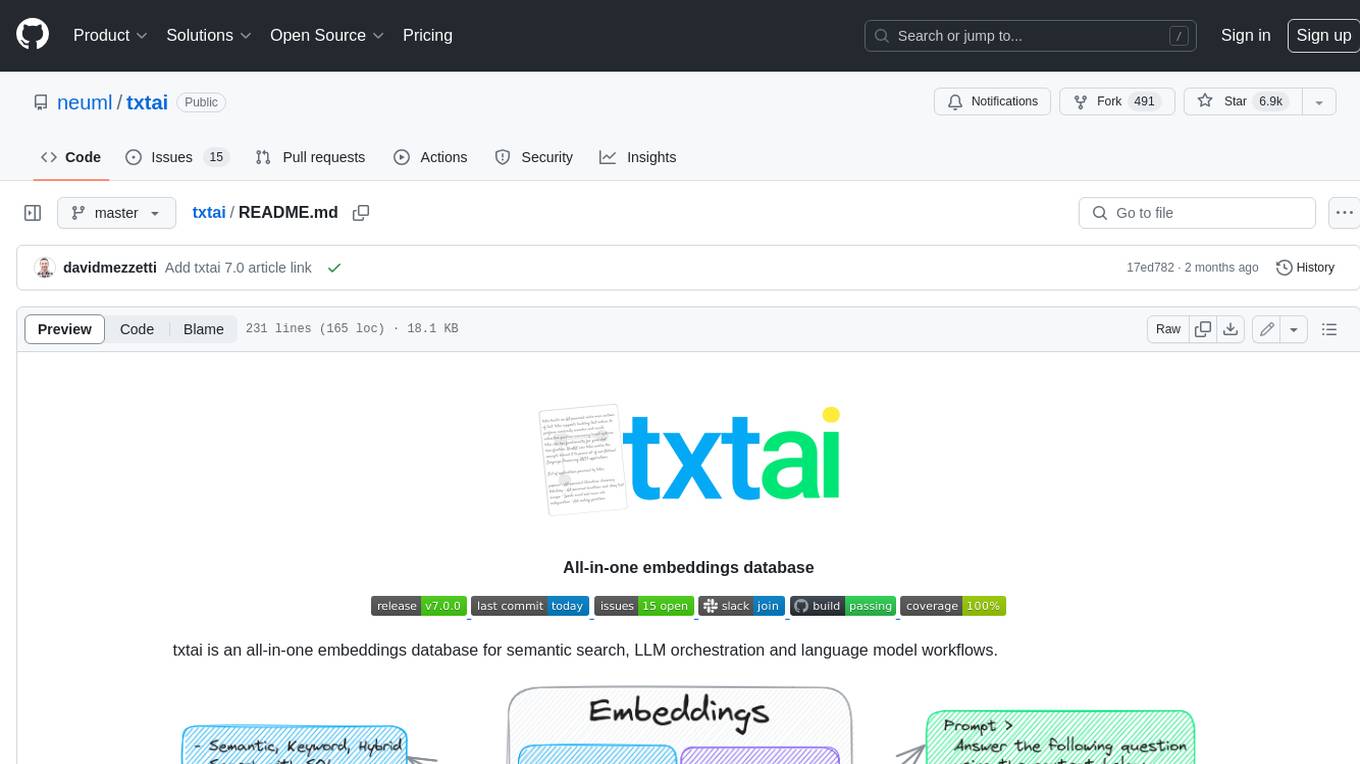
txtai
Txtai is an all-in-one embeddings database for semantic search, LLM orchestration, and language model workflows. It combines vector indexes, graph networks, and relational databases to enable vector search with SQL, topic modeling, retrieval augmented generation, and more. Txtai can stand alone or serve as a knowledge source for large language models (LLMs). Key features include vector search with SQL, object storage, topic modeling, graph analysis, multimodal indexing, embedding creation for various data types, pipelines powered by language models, workflows to connect pipelines, and support for Python, JavaScript, Java, Rust, and Go. Txtai is open-source under the Apache 2.0 license.
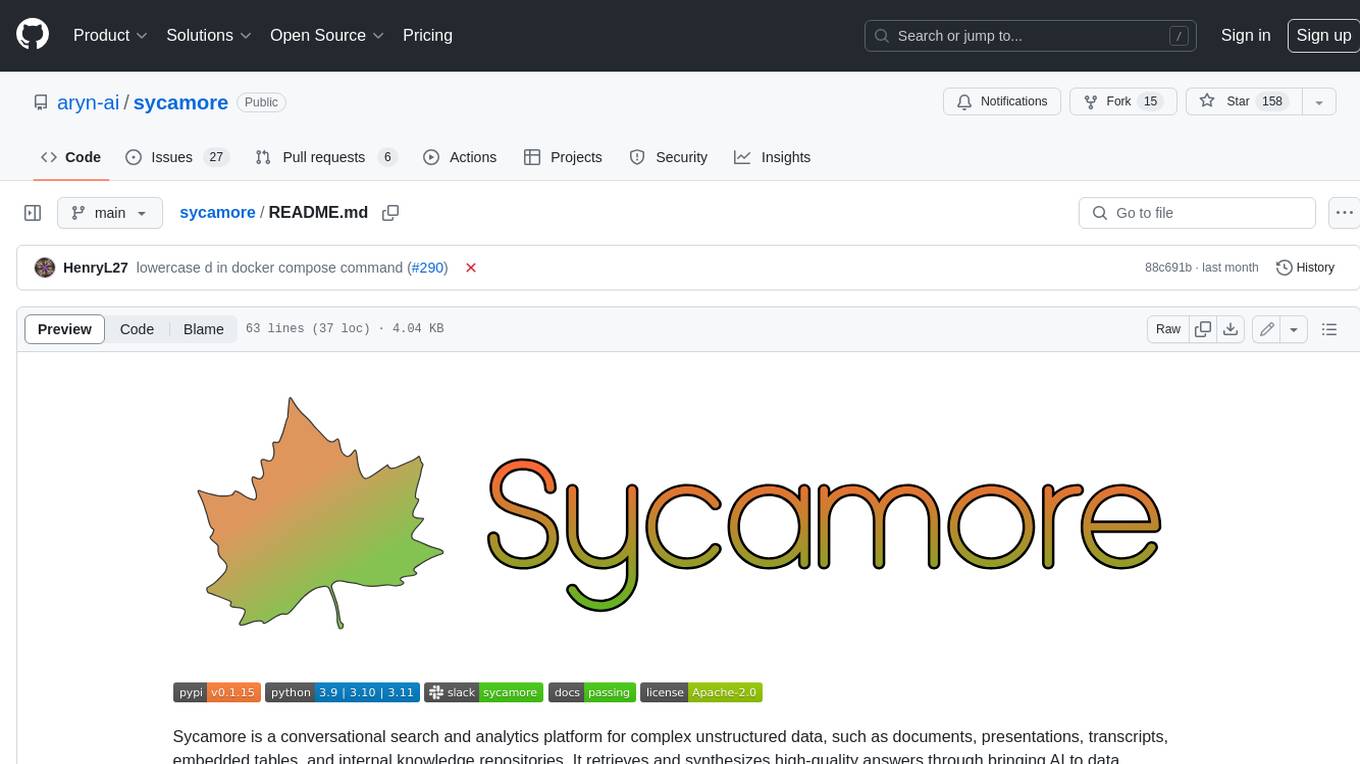
sycamore
Sycamore is a conversational search and analytics platform for complex unstructured data, such as documents, presentations, transcripts, embedded tables, and internal knowledge repositories. It retrieves and synthesizes high-quality answers through bringing AI to data preparation, indexing, and retrieval. Sycamore makes it easy to prepare unstructured data for search and analytics, providing a toolkit for data cleaning, information extraction, enrichment, summarization, and generation of vector embeddings that encapsulate the semantics of data. Sycamore uses your choice of generative AI models to make these operations simple and effective, and it enables quick experimentation and iteration. Additionally, Sycamore uses OpenSearch for indexing, enabling hybrid (vector + keyword) search, retrieval-augmented generation (RAG) pipelining, filtering, analytical functions, conversational memory, and other features to improve information retrieval.

rclip
rclip is a command-line photo search tool powered by the OpenAI's CLIP neural network. It allows users to search for images using text queries, similar image search, and combining multiple queries. The tool extracts features from photos to enable searching and indexing, with options for previewing results in supported terminals or custom viewers. Users can install rclip on Linux, macOS, and Windows using different installation methods. The repository follows the Conventional Commits standard and welcomes contributions from the community.
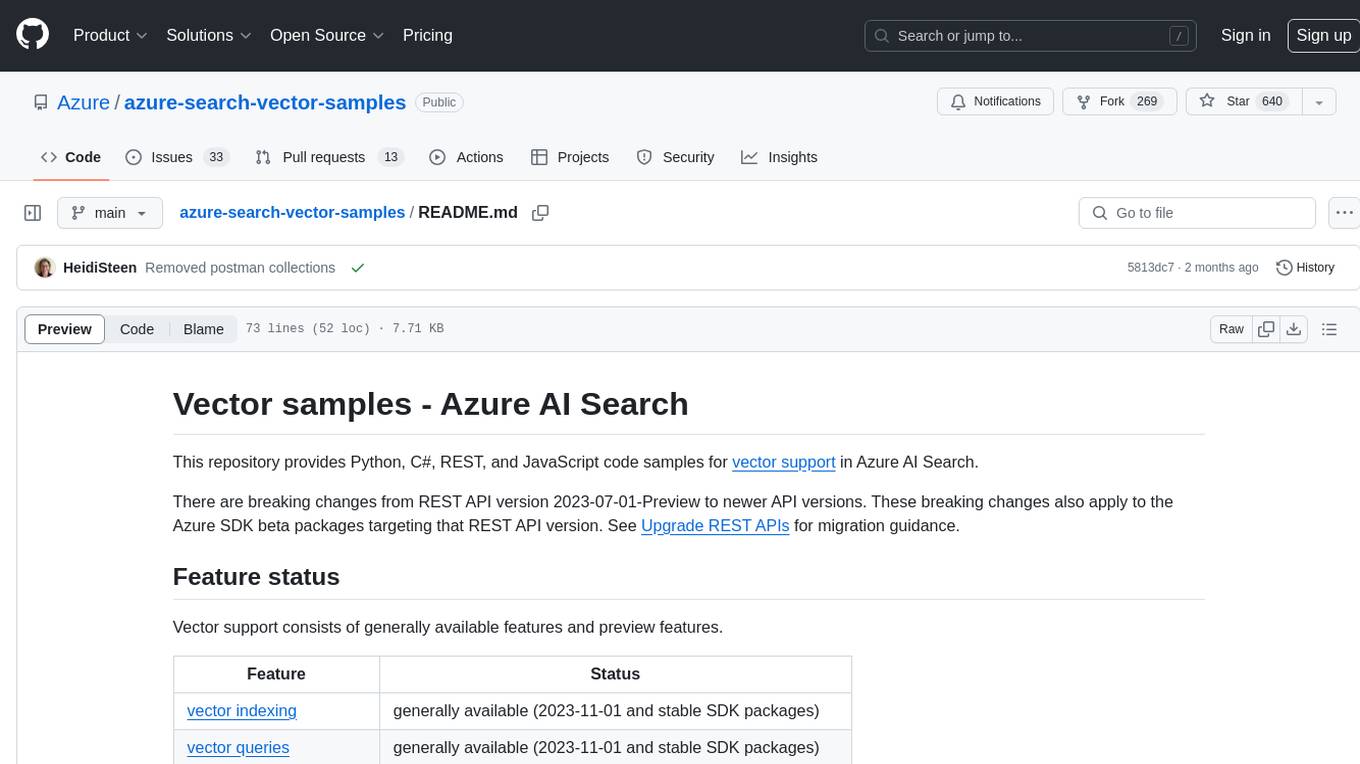
azure-search-vector-samples
This repository provides code samples in Python, C#, REST, and JavaScript for vector support in Azure AI Search. It includes demos for various languages showcasing vectorization of data, creating indexes, and querying vector data. Additionally, it offers tools like Azure AI Search Lab for experimenting with AI-enabled search scenarios in Azure and templates for deploying custom chat-with-your-data solutions. The repository also features documentation on vector search, hybrid search, creating and querying vector indexes, and REST API references for Azure AI Search and Azure OpenAI Service.
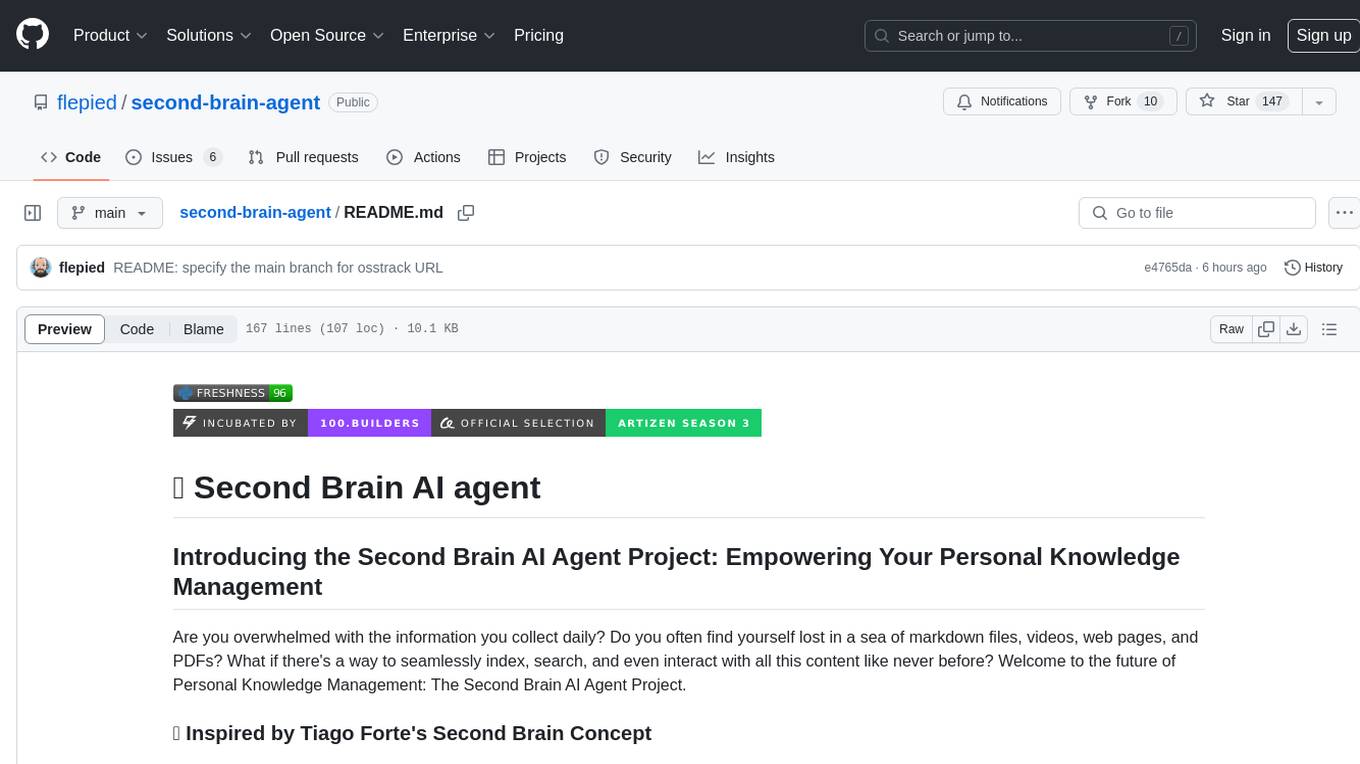
second-brain-agent
The Second Brain AI Agent Project is a tool designed to empower personal knowledge management by automatically indexing markdown files and links, providing a smart search engine powered by OpenAI, integrating seamlessly with different note-taking methods, and enhancing productivity by accessing information efficiently. The system is built on LangChain framework and ChromaDB vector store, utilizing a pipeline to process markdown files and extract text and links for indexing. It employs a Retrieval-augmented generation (RAG) process to provide context for asking questions to the large language model. The tool is beneficial for professionals, students, researchers, and creatives looking to streamline workflows, improve study sessions, delve deep into research, and organize thoughts and ideas effortlessly.
20 - OpenAI Gpts

Search Ads Headline Generator
Creates Google Ads headlines in bulk based on direct response copy principles.
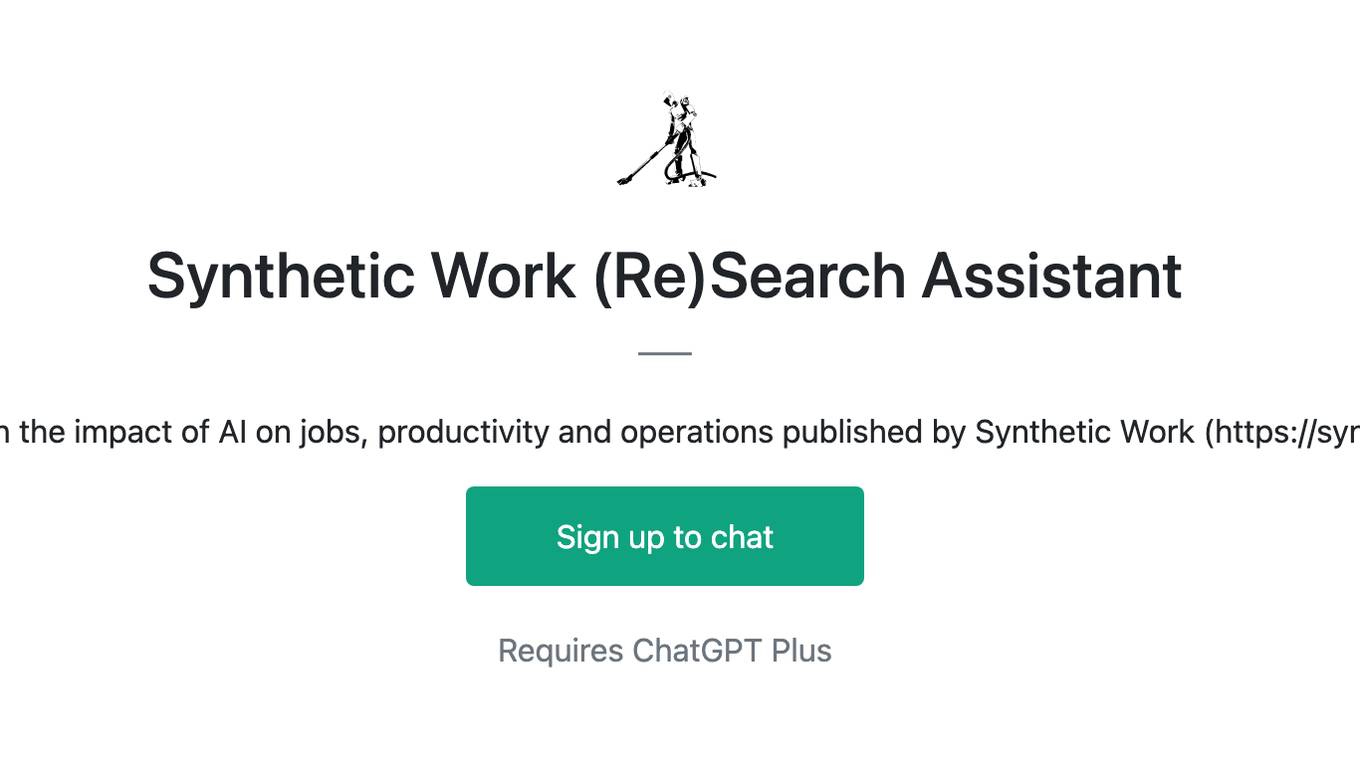
Synthetic Work (Re)Search Assistant
Search data on the impact of AI on jobs, productivity and operations published by Synthetic Work (https://synthetic.work)
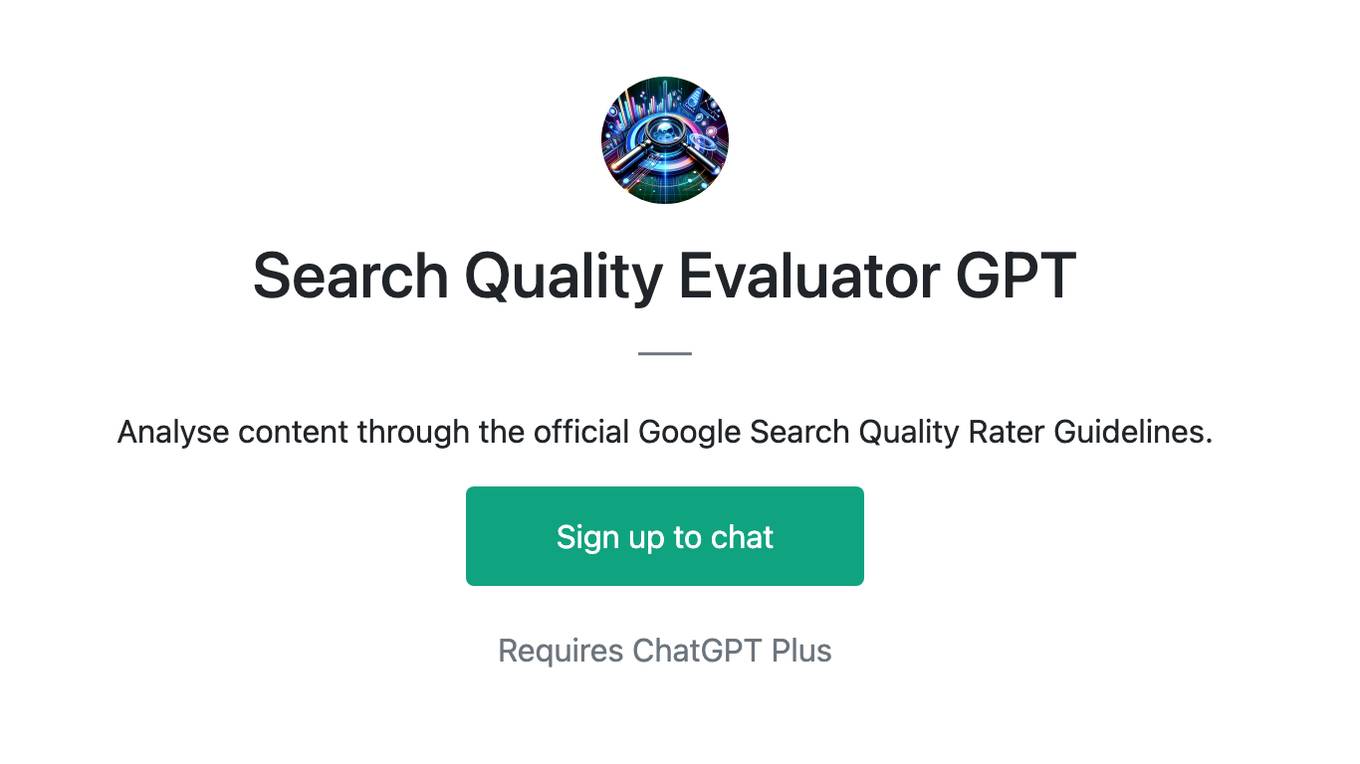
Search Quality Evaluator GPT
Analyse content through the official Google Search Quality Rater Guidelines.
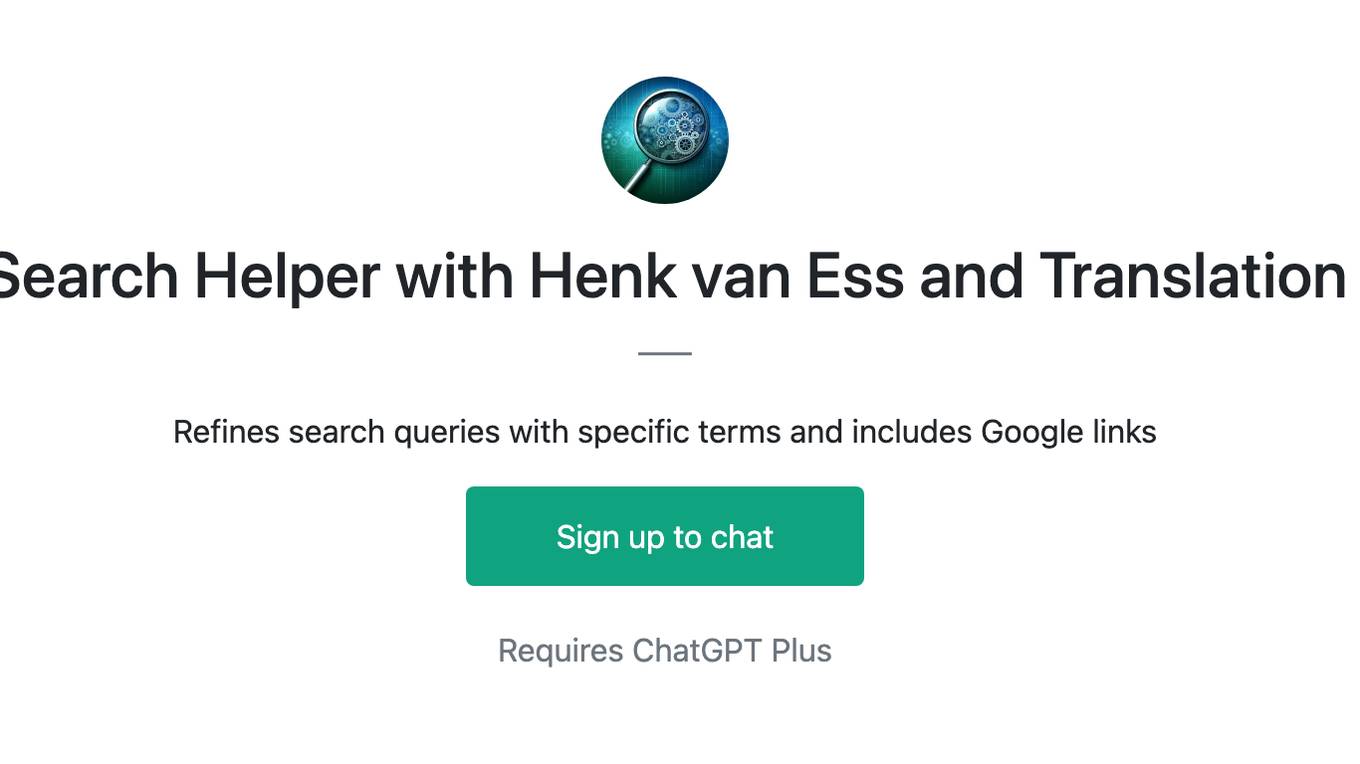
Search Helper with Henk van Ess and Translation
Refines search queries with specific terms and includes Google links
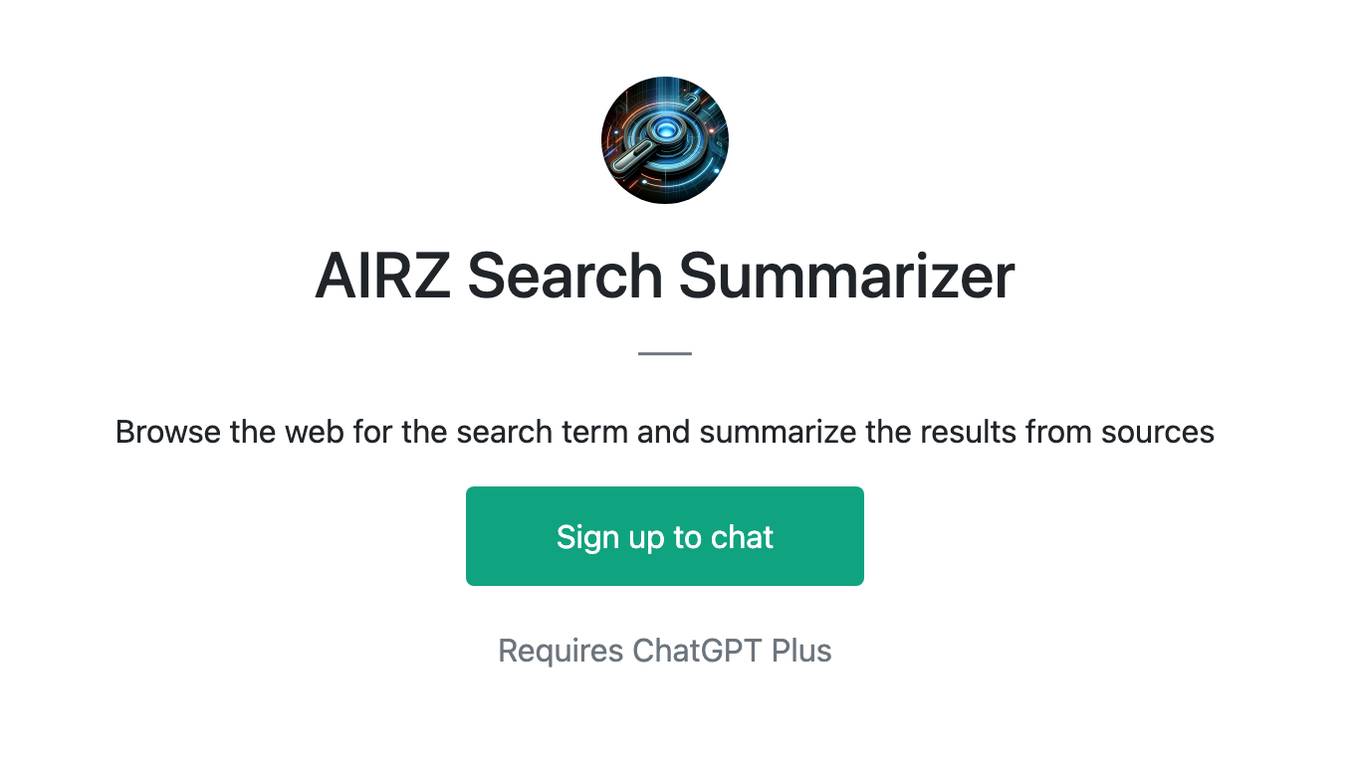
AIRZ Search Summarizer
Browse the web for the search term and summarize the results from sources
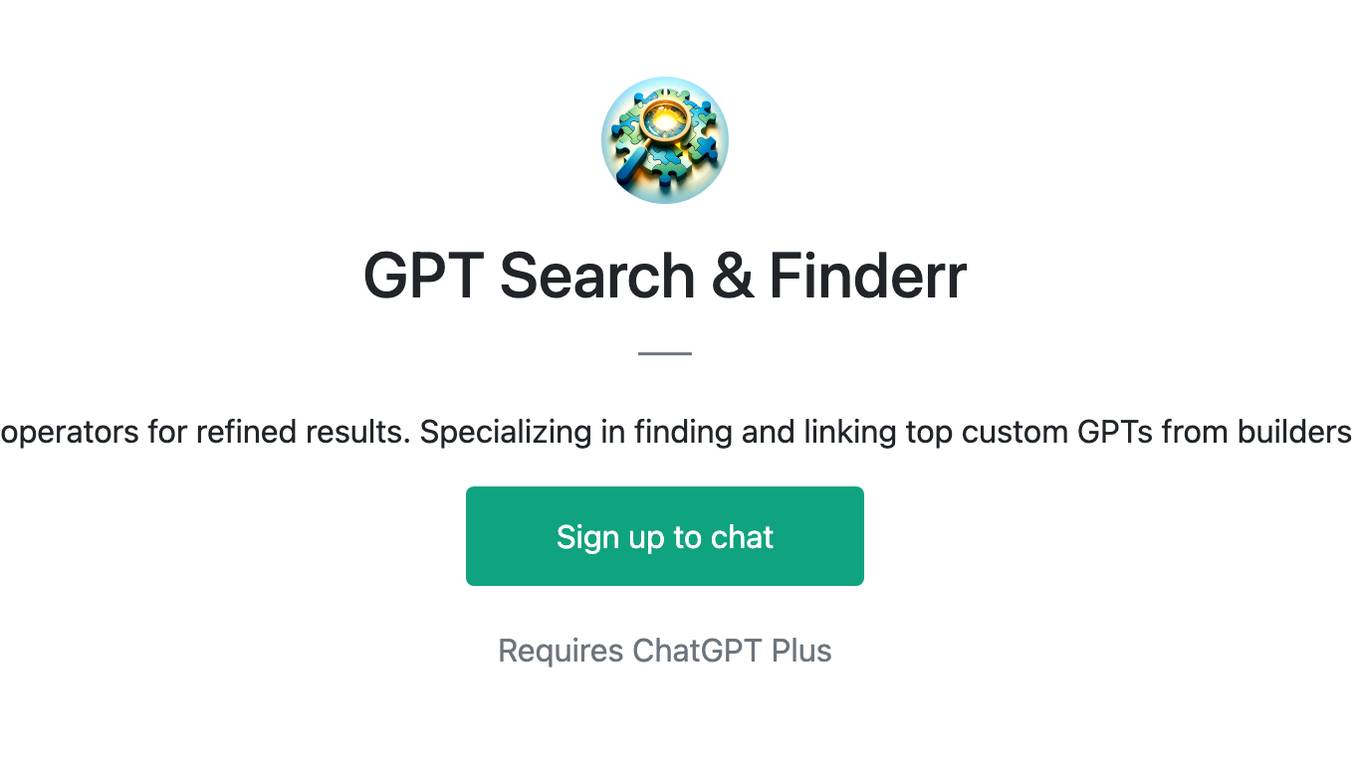
GPT Search & Finderr
Optimized with advanced search operators for refined results. Specializing in finding and linking top custom GPTs from builders around the world. Version 0.3.0
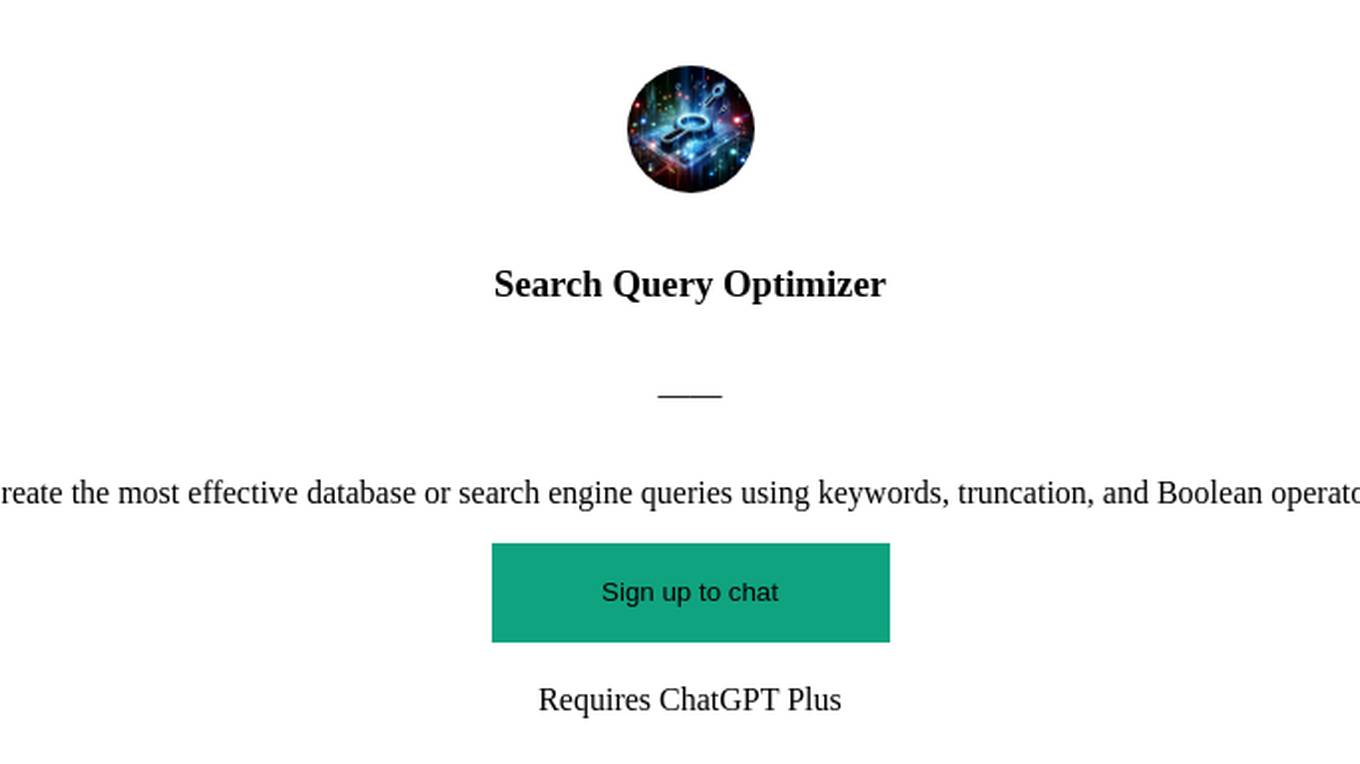
Search Query Optimizer
Create the most effective database or search engine queries using keywords, truncation, and Boolean operators!

Deen Search
Expert en Islam offrant des conseils détaillés sur la base du Saint Coran et des Hadiths

Sandeep Amar Search Console Sage
This GPT answers all the questions related to Google Search Console
